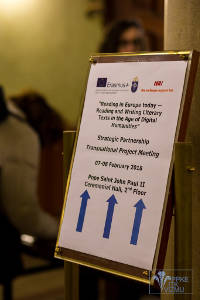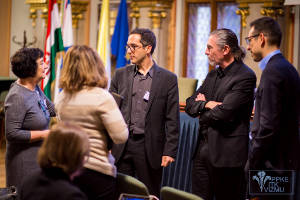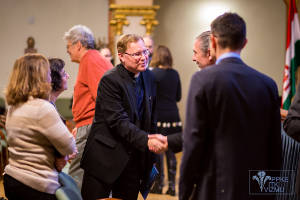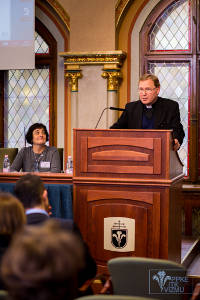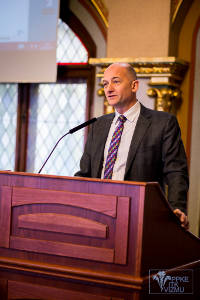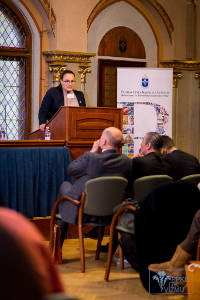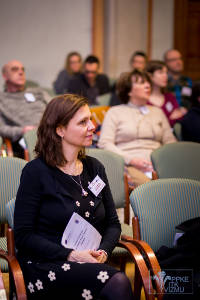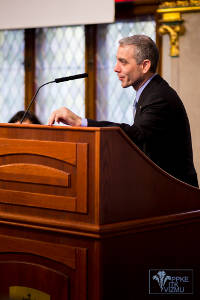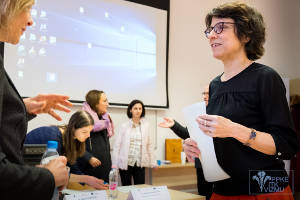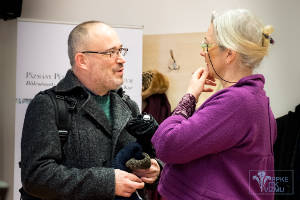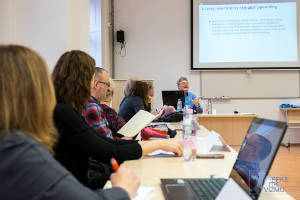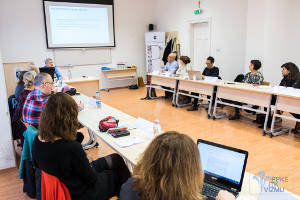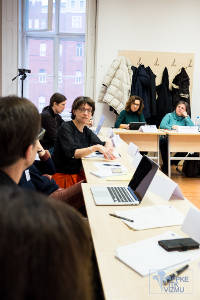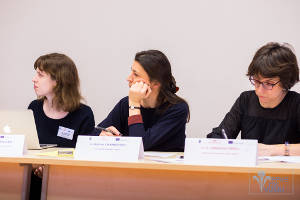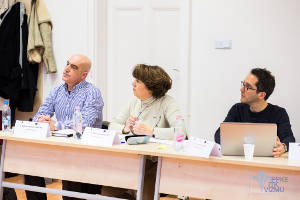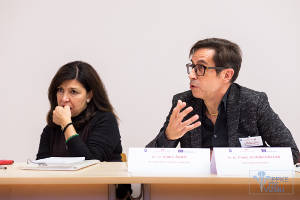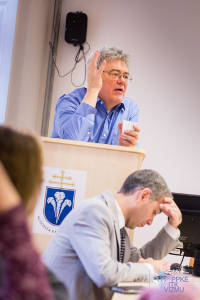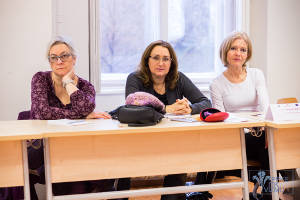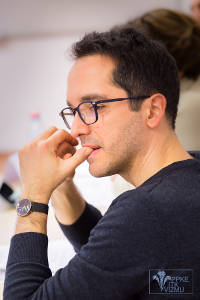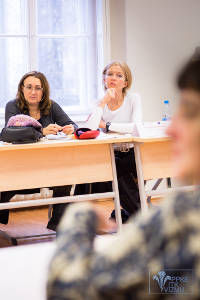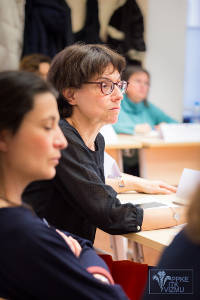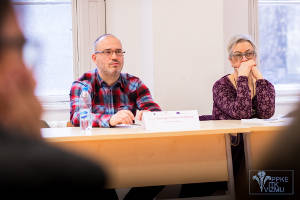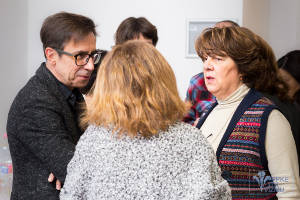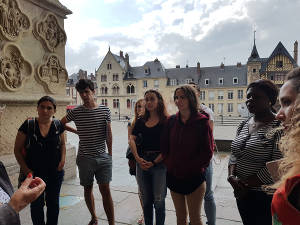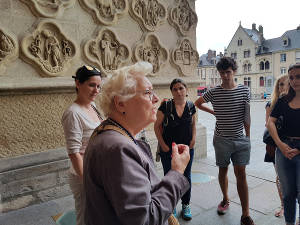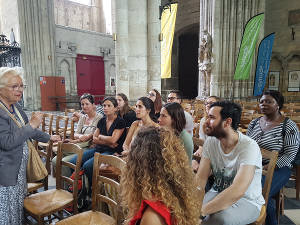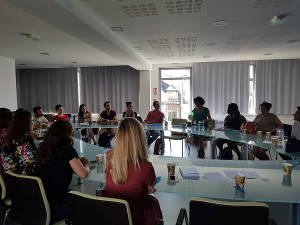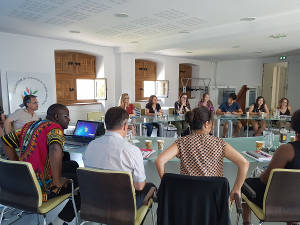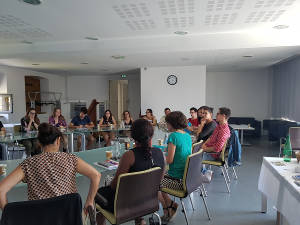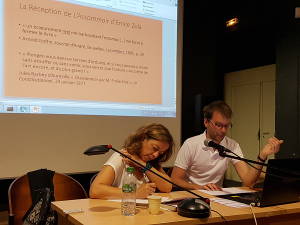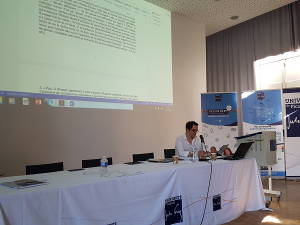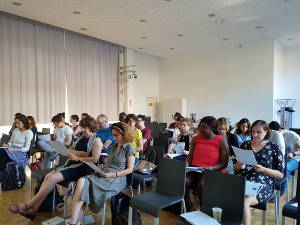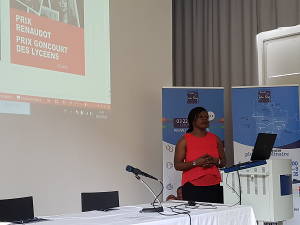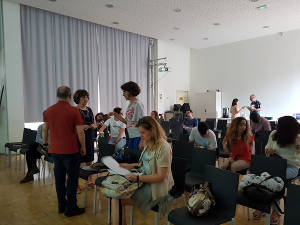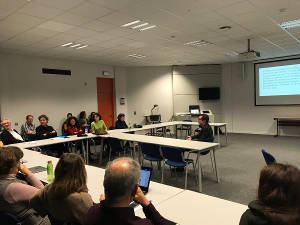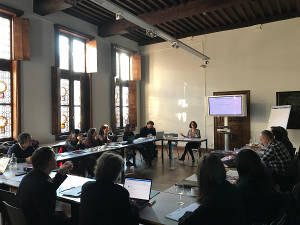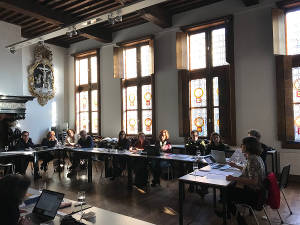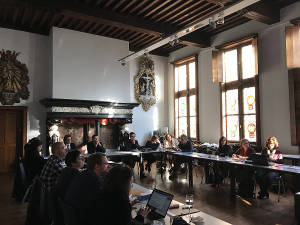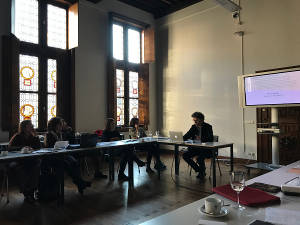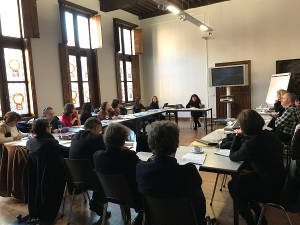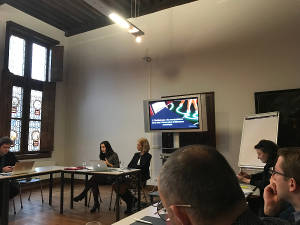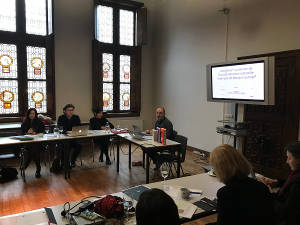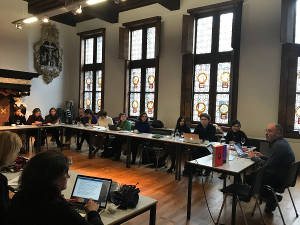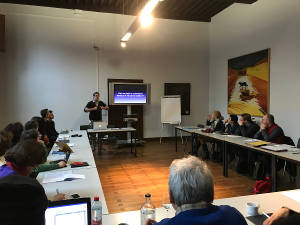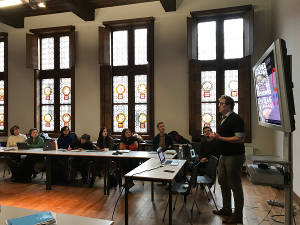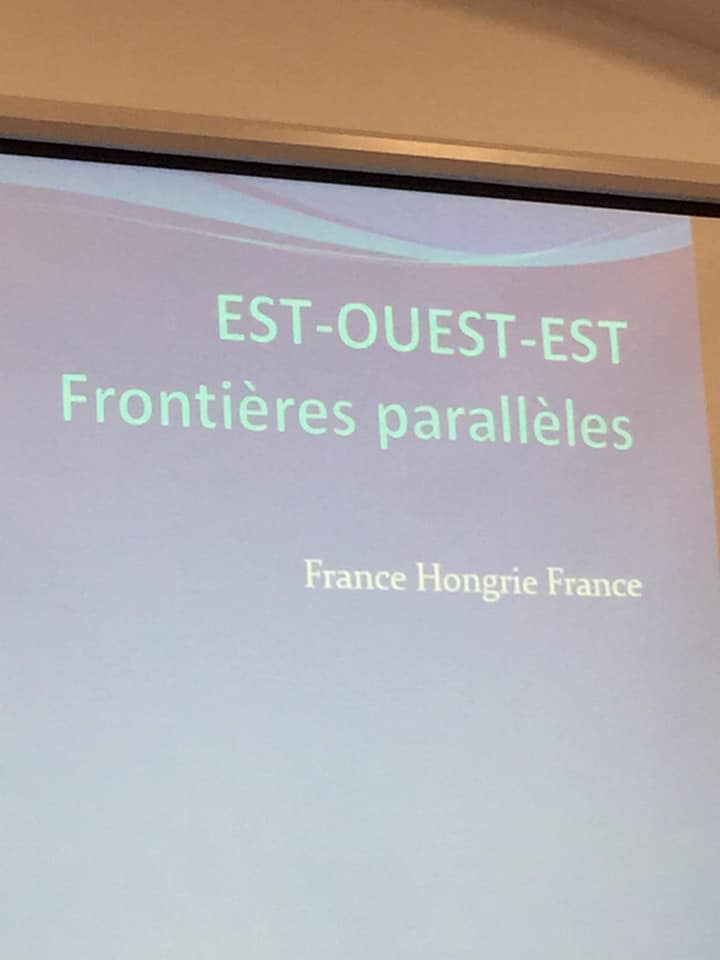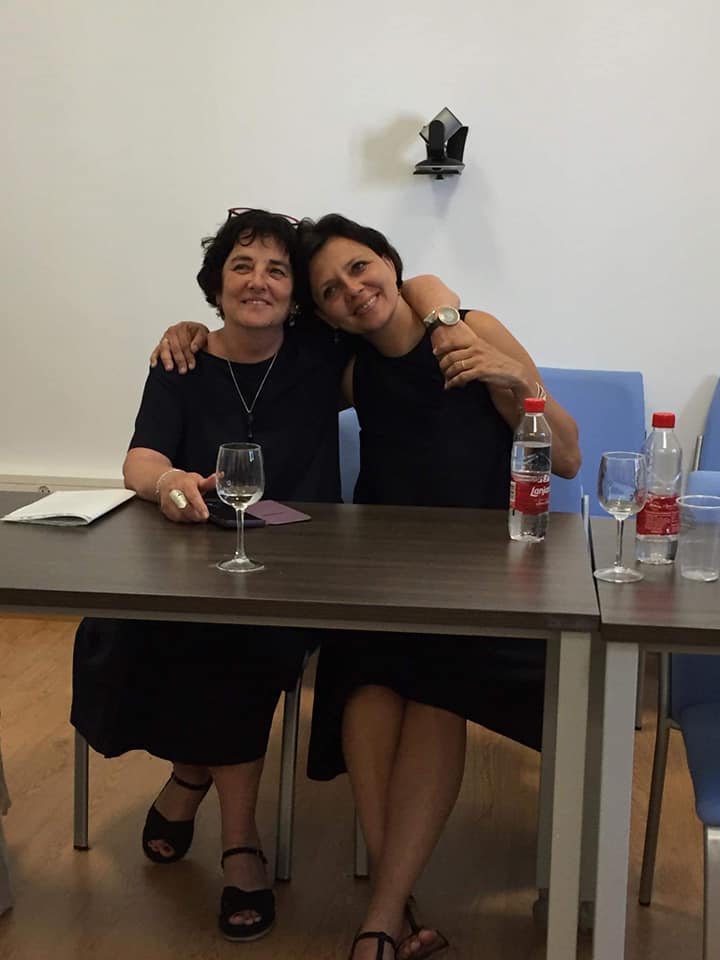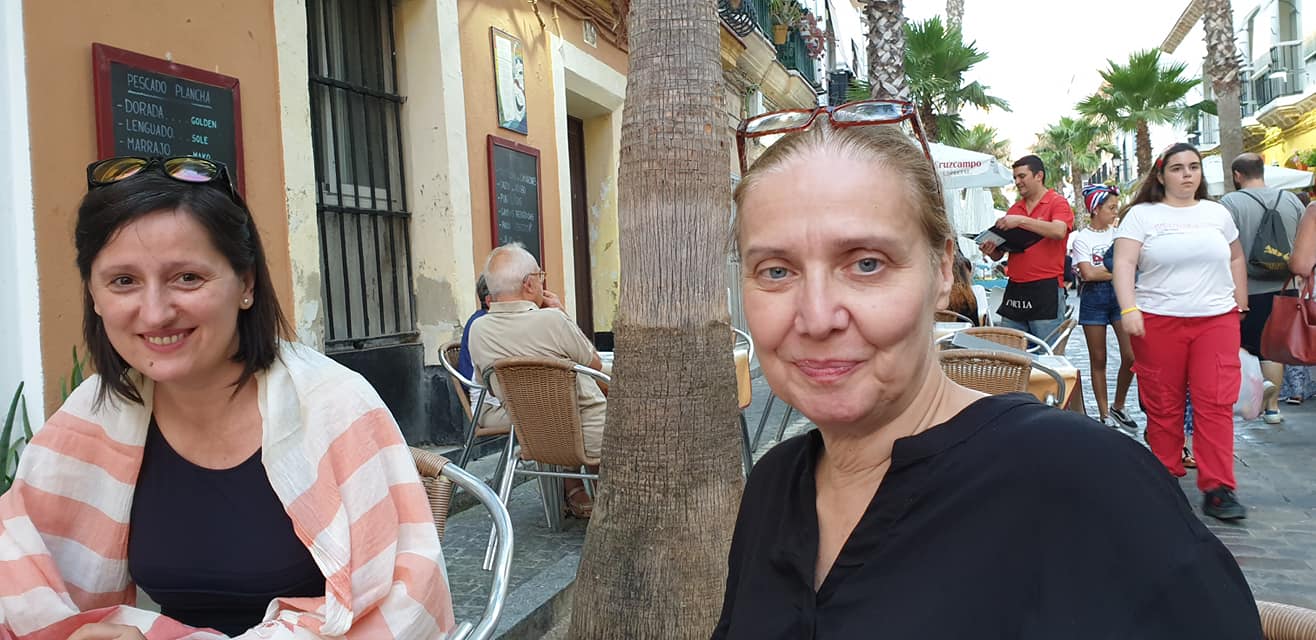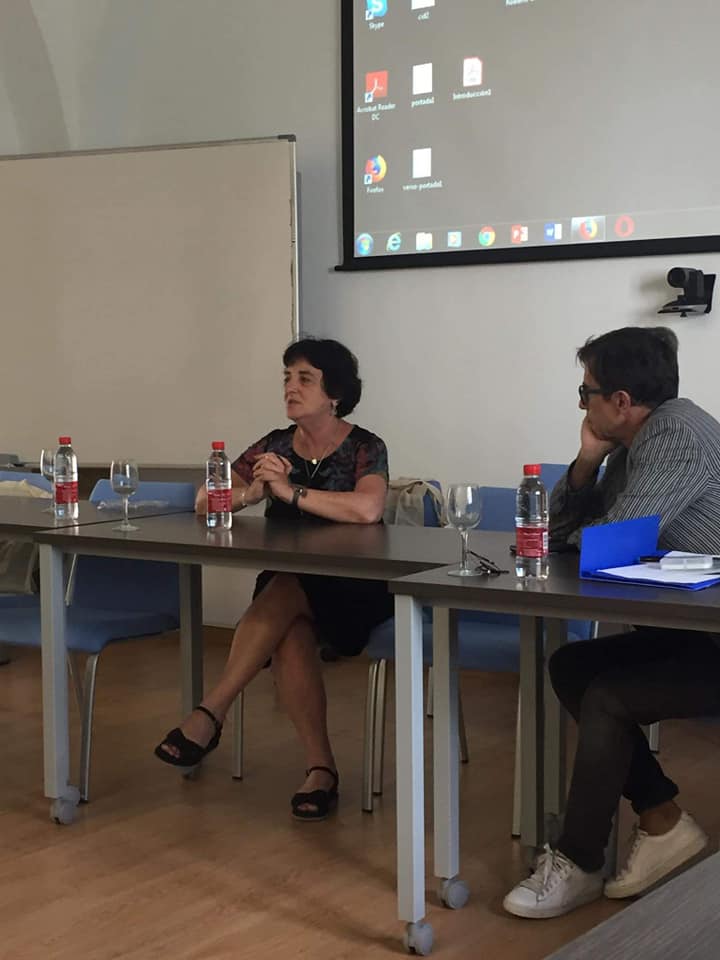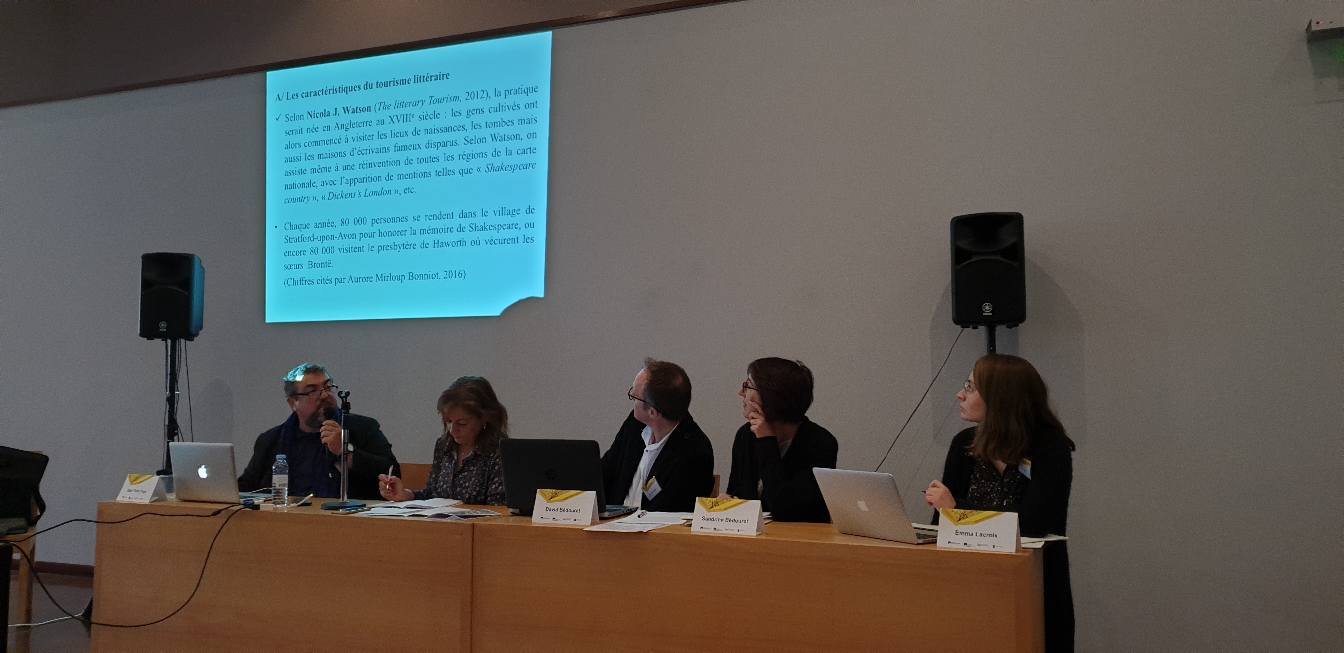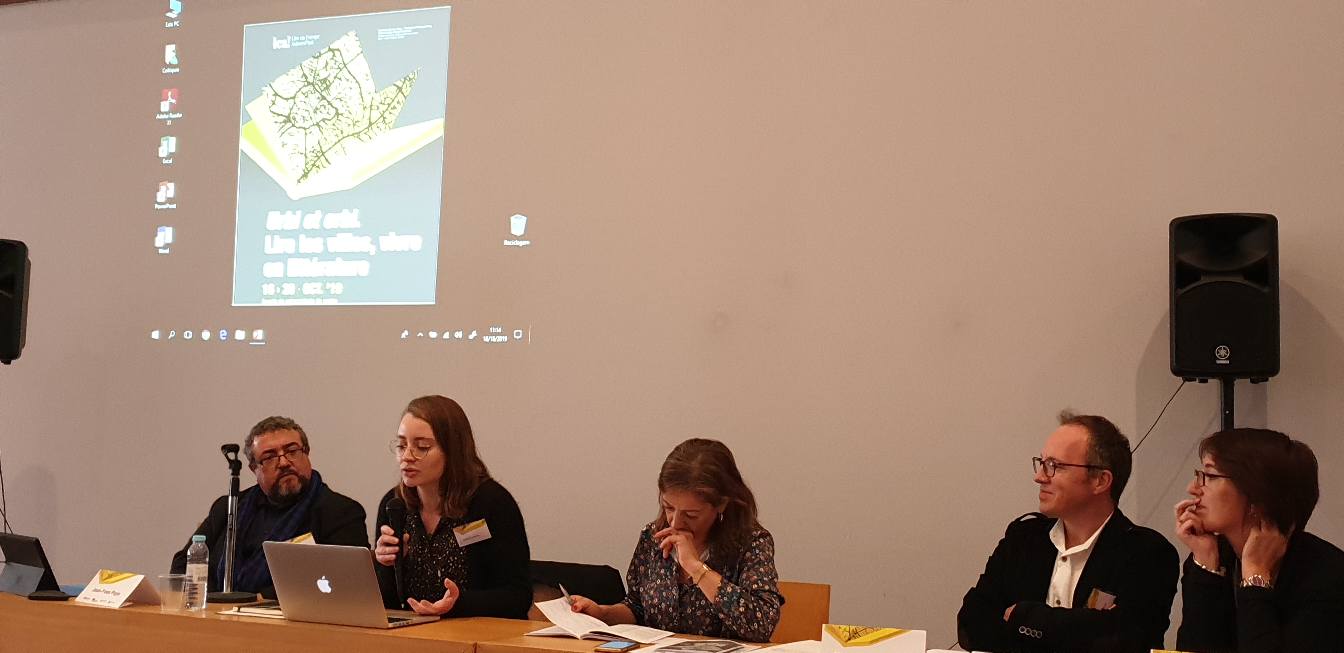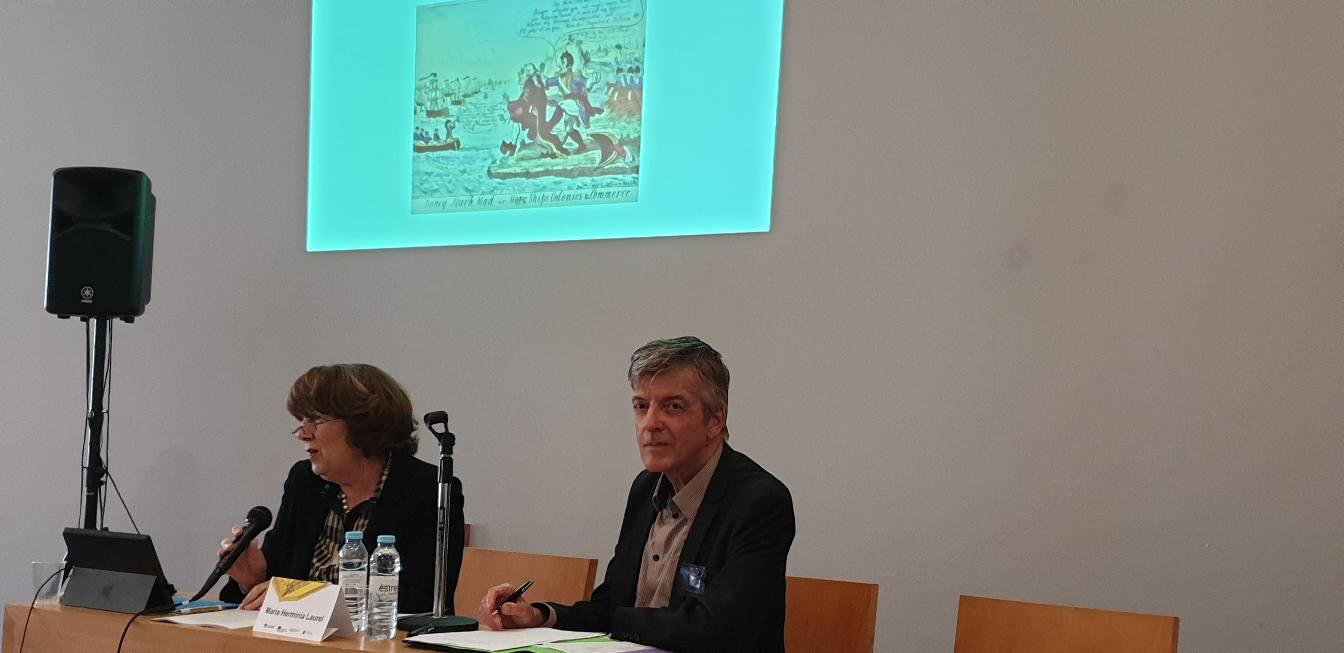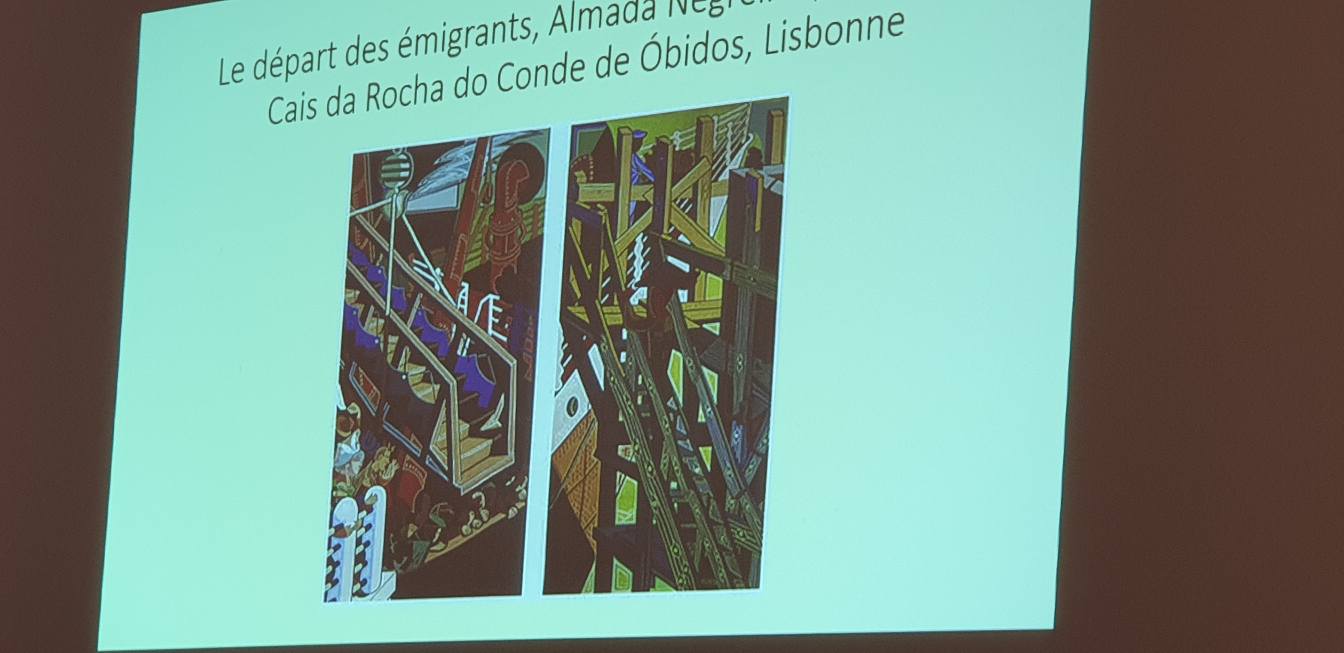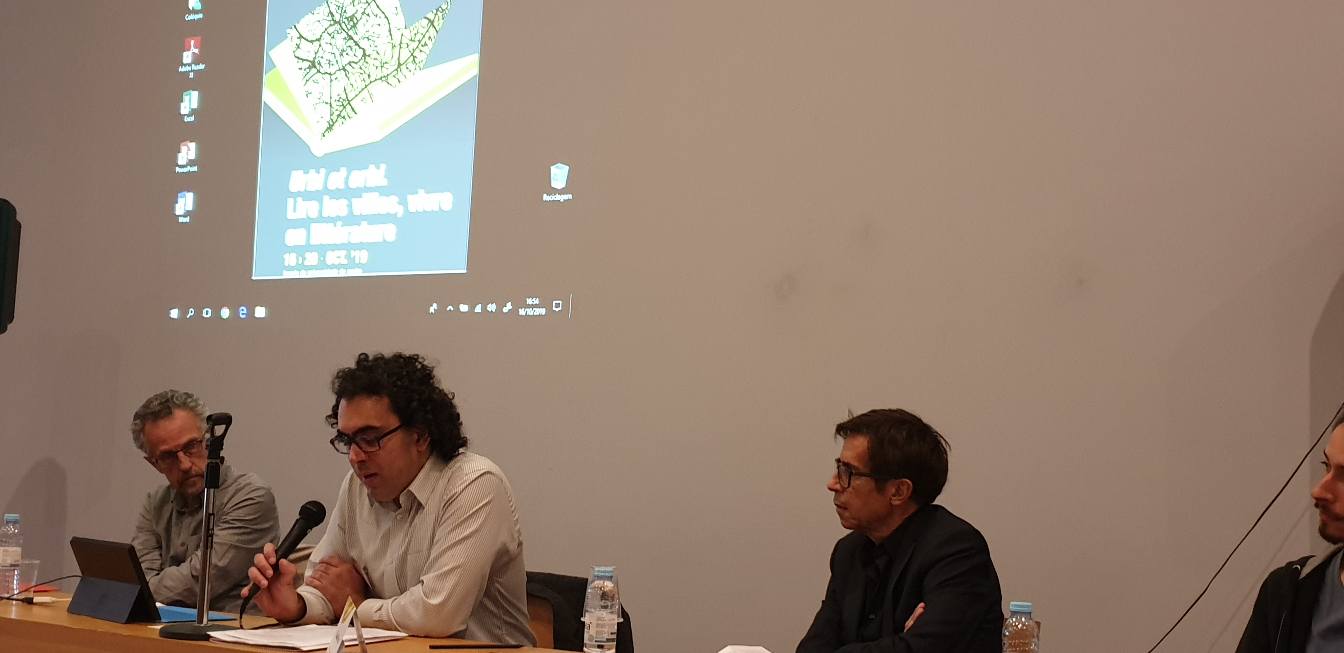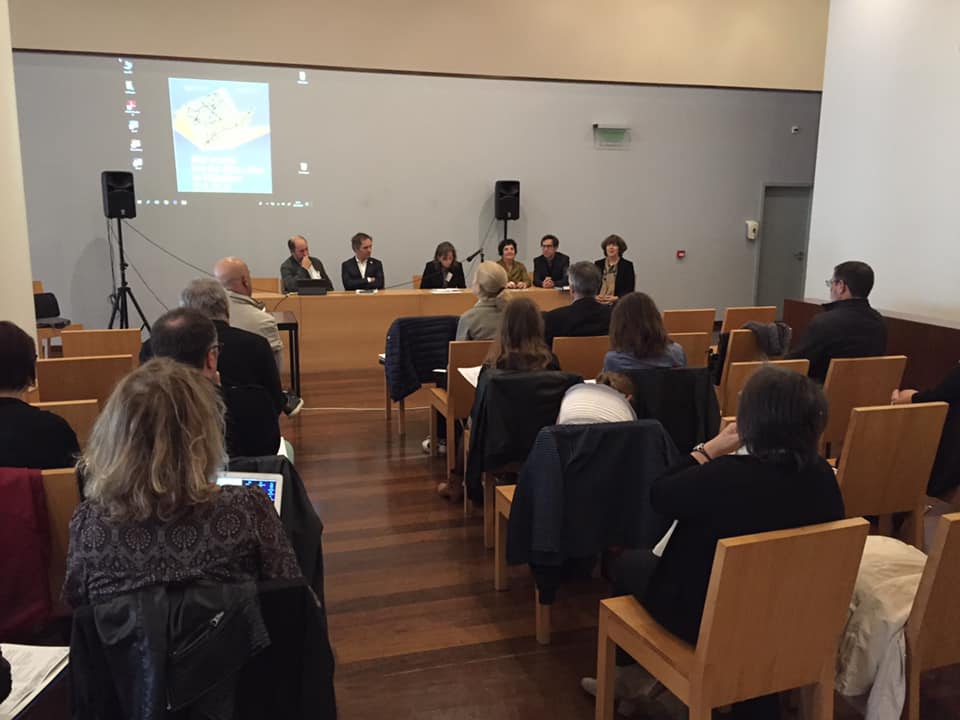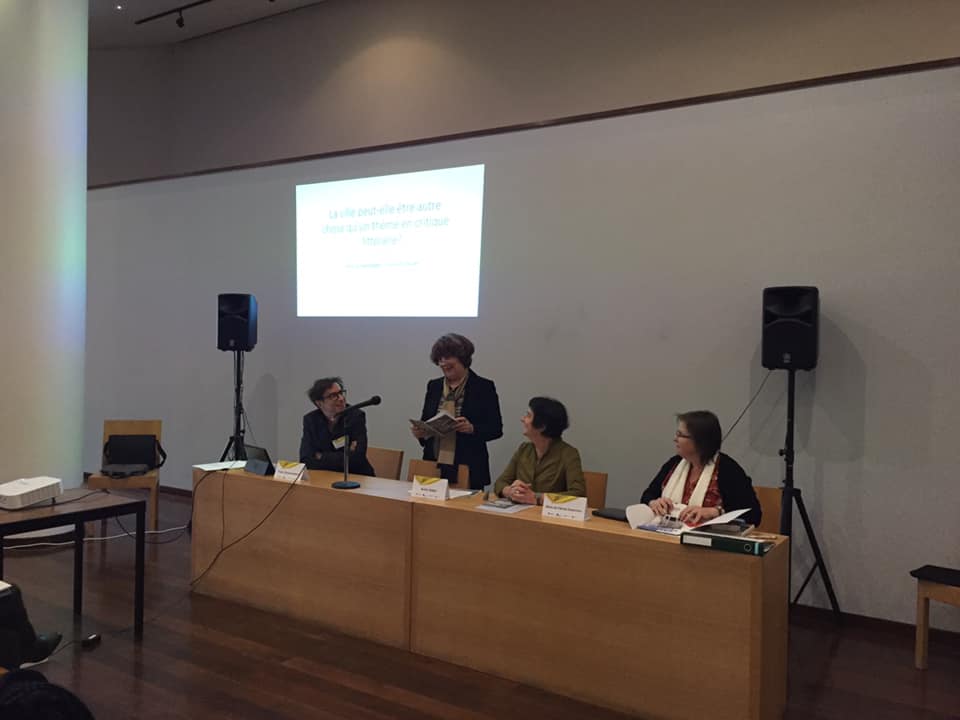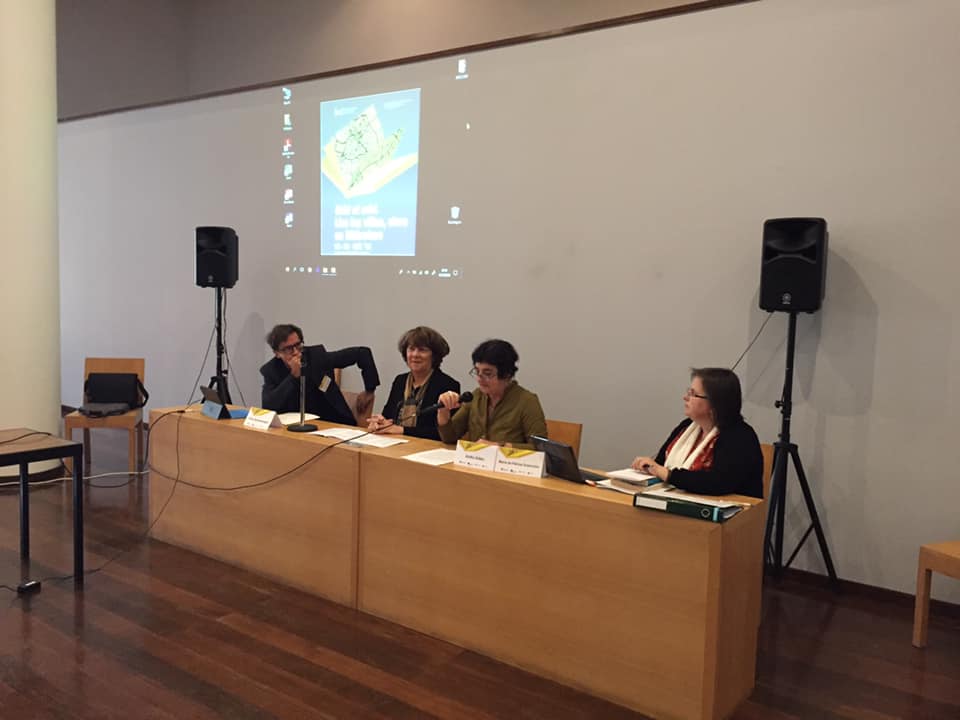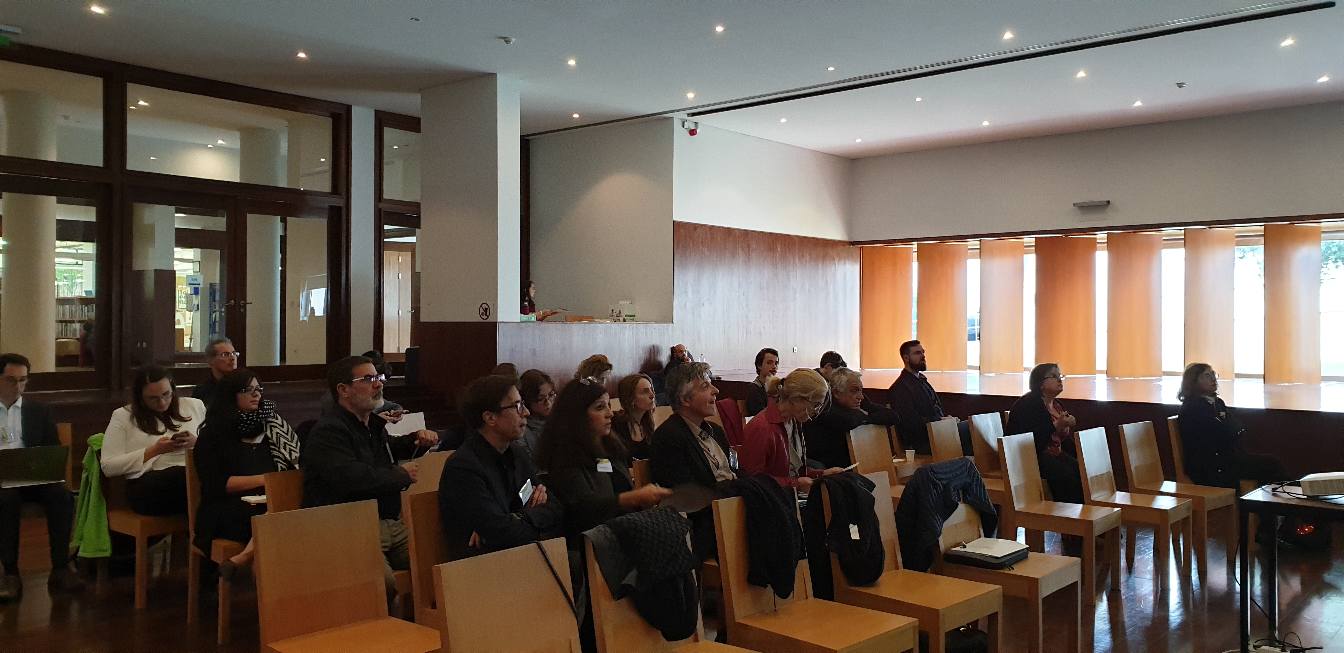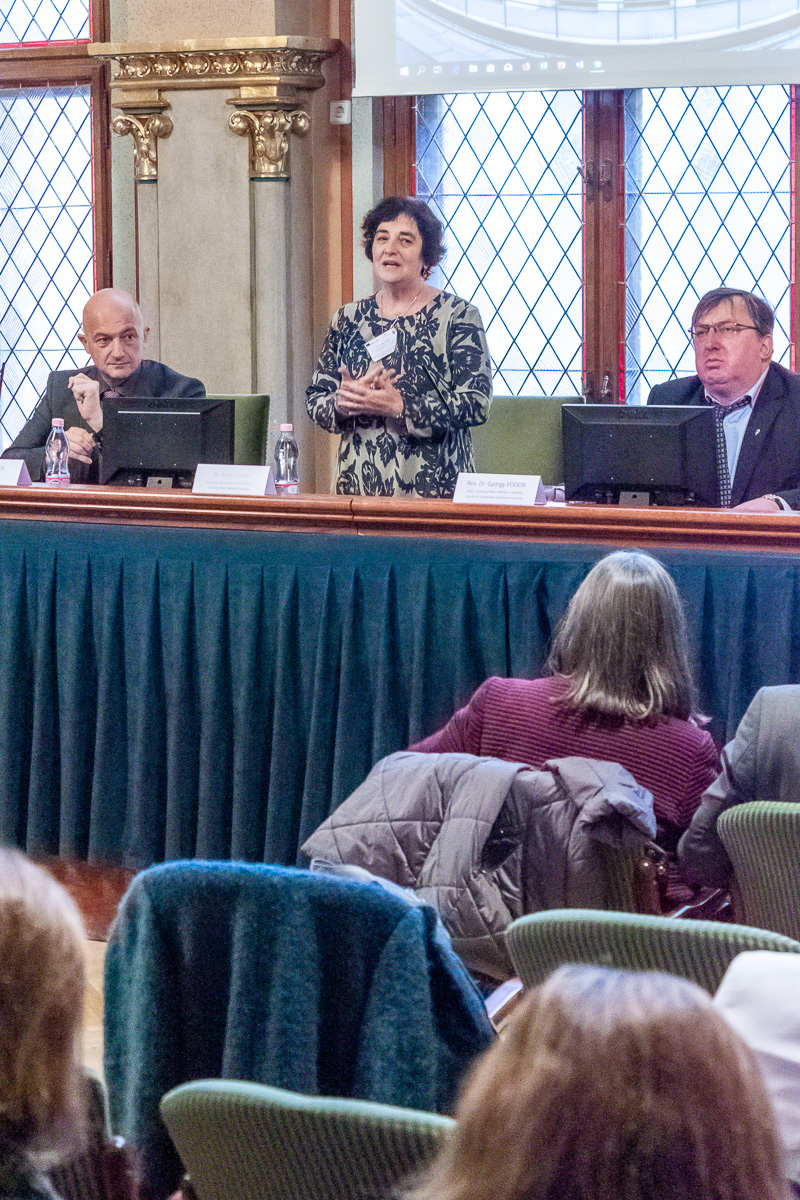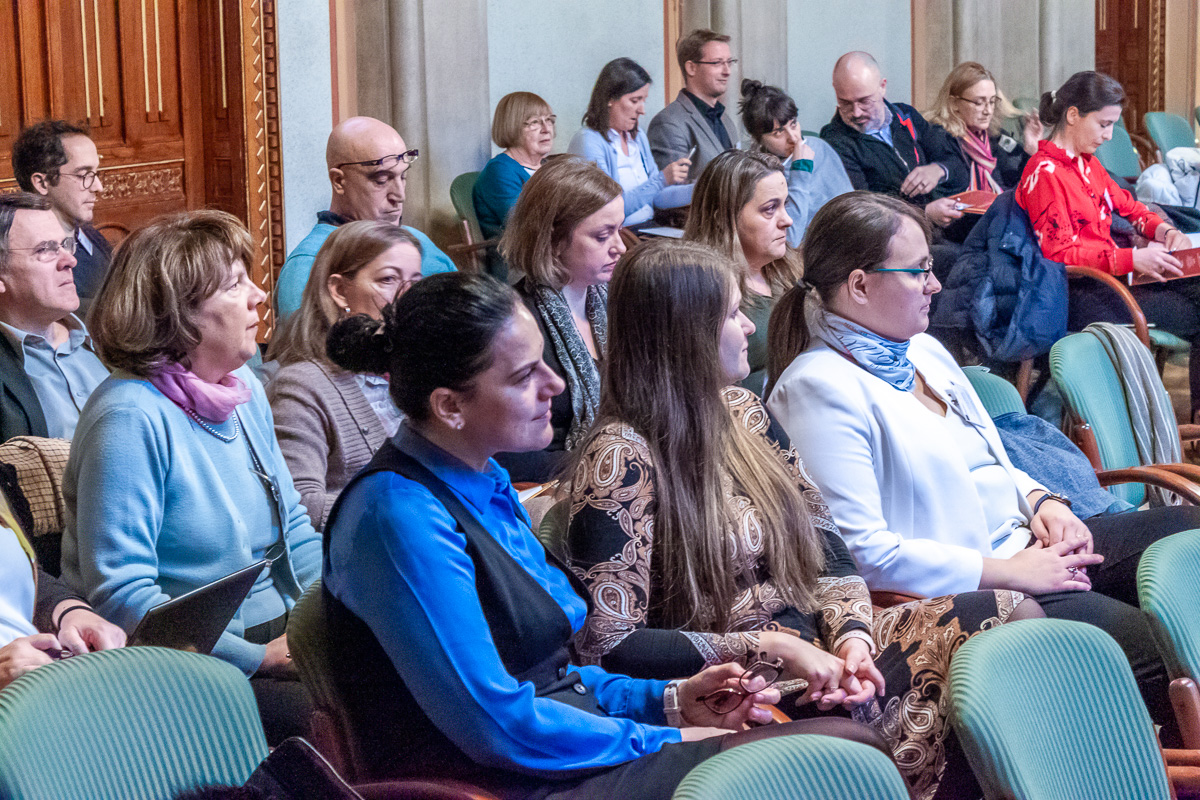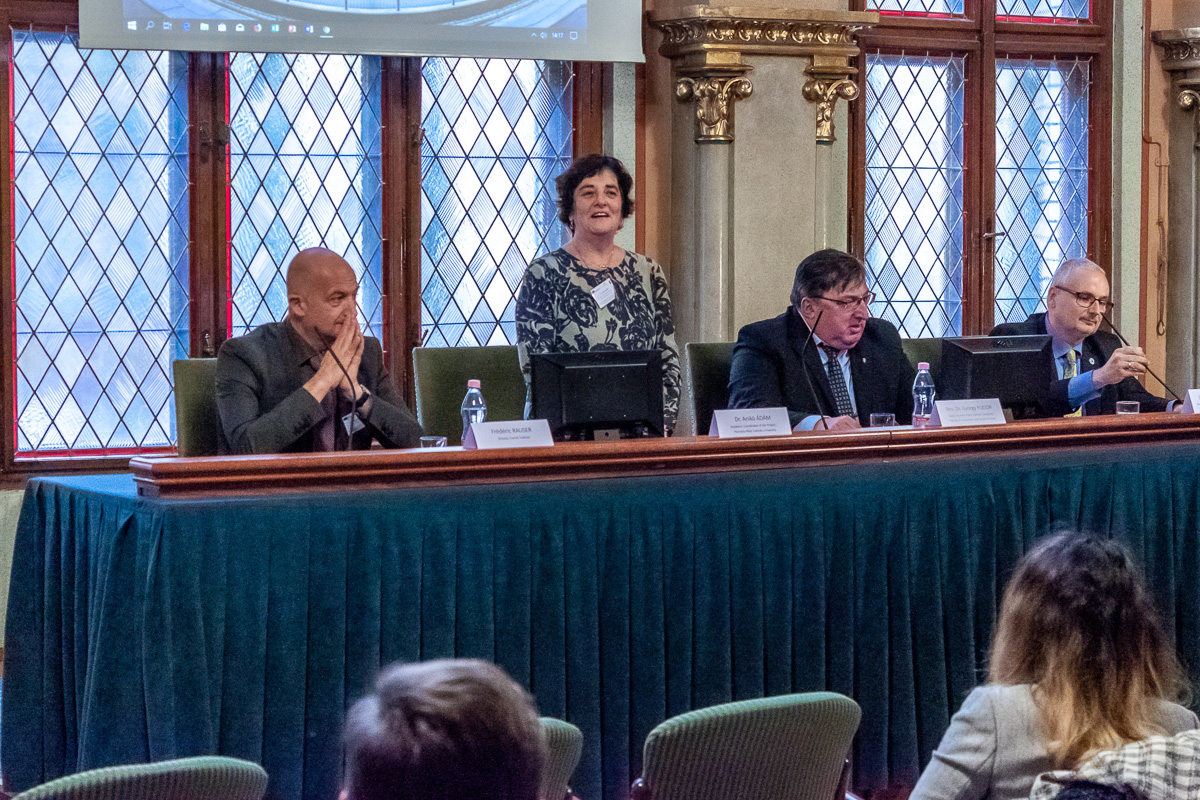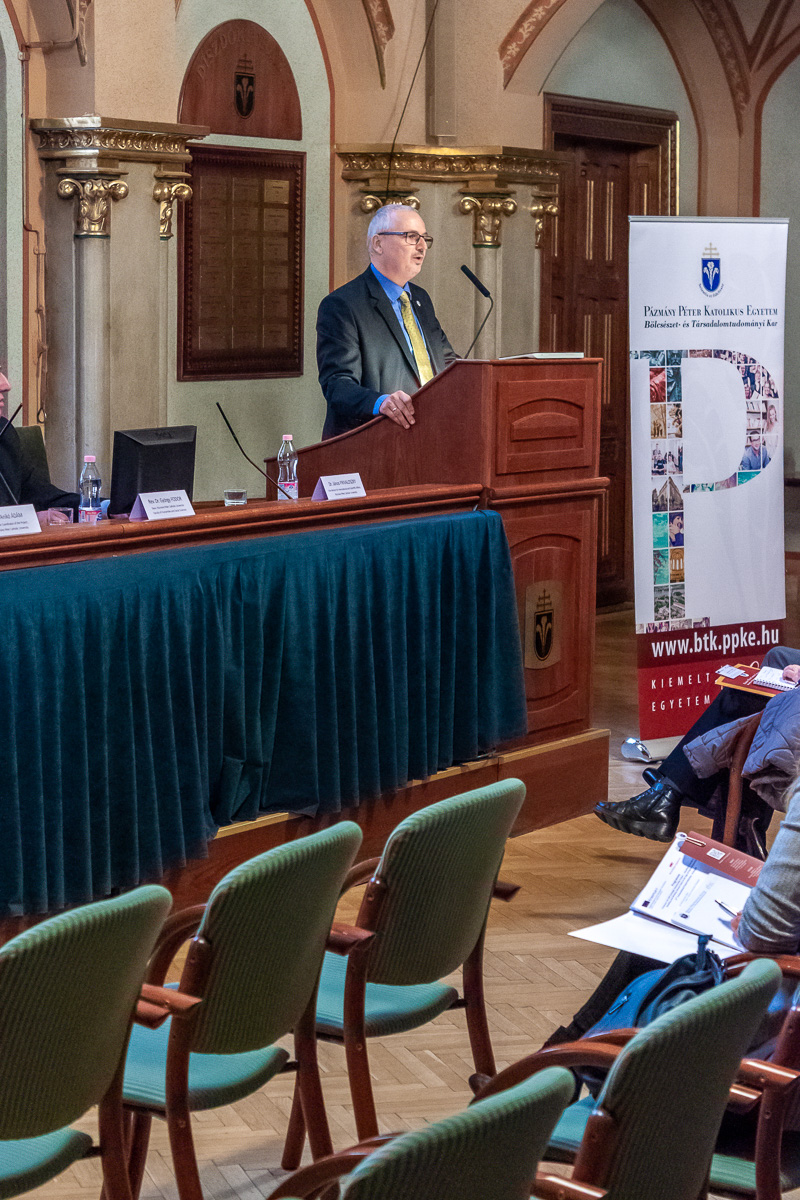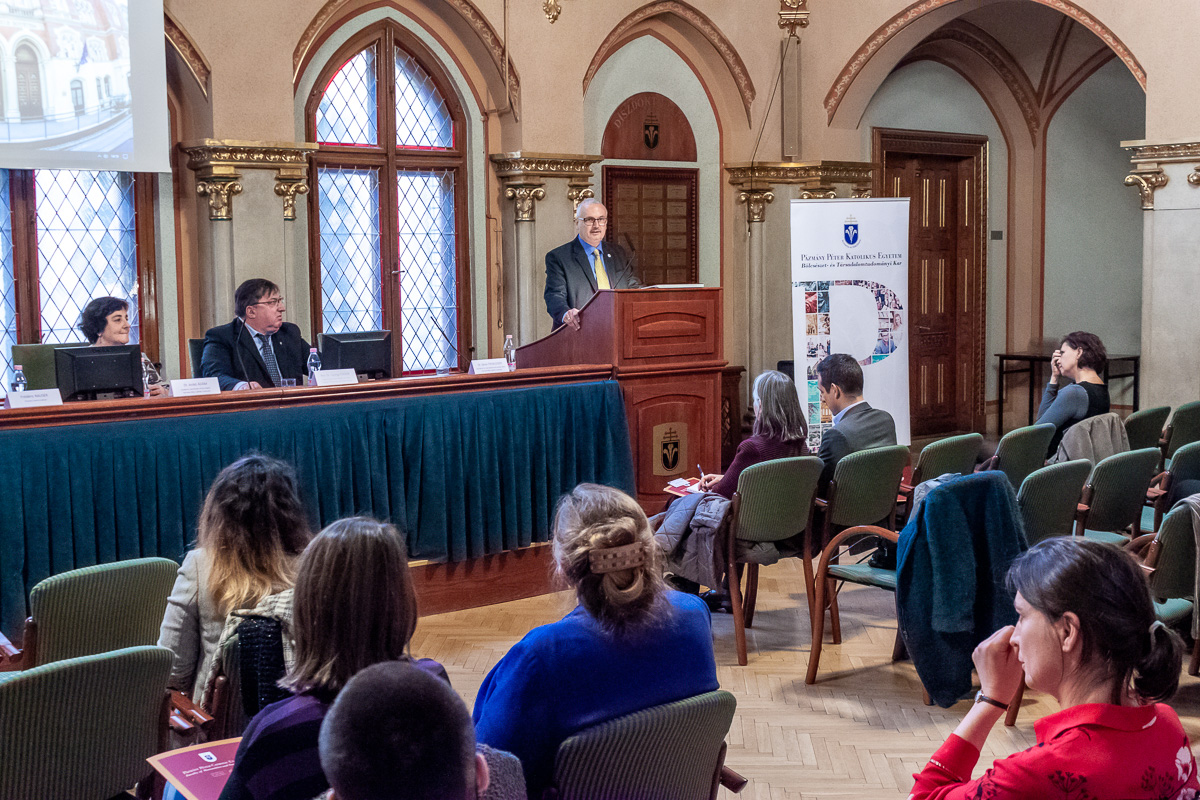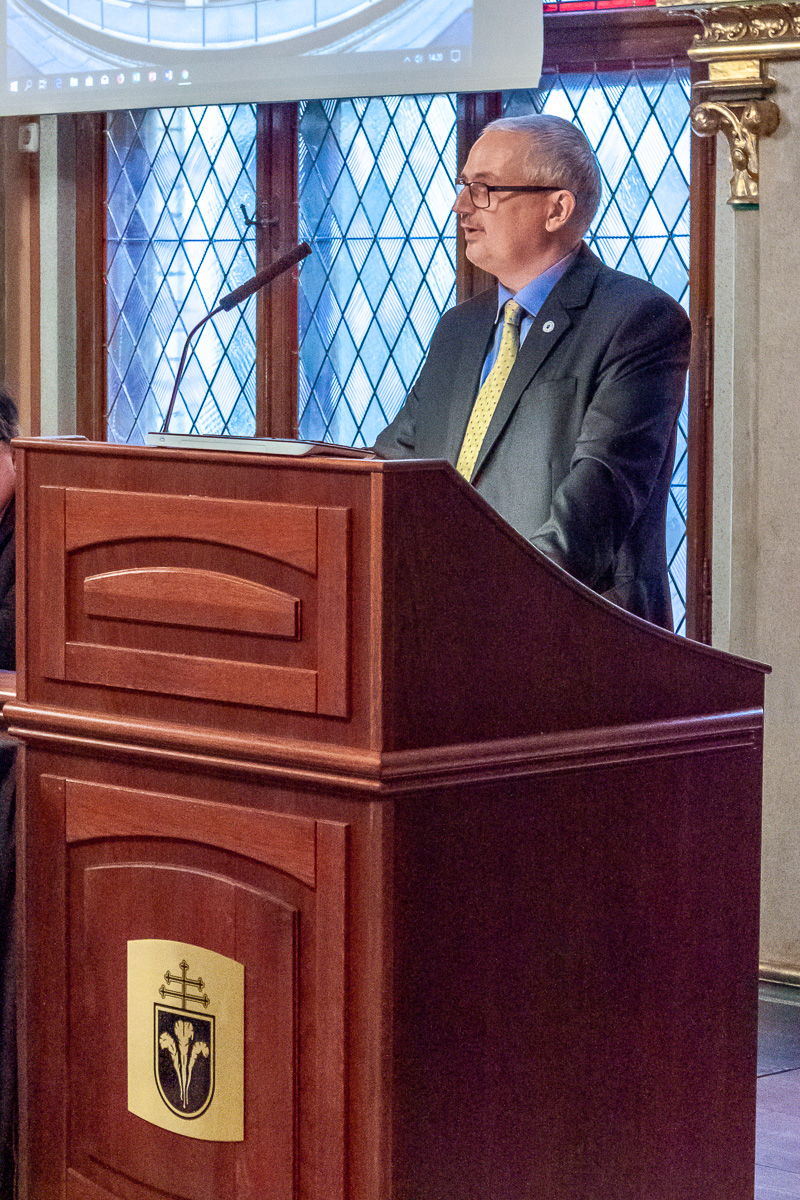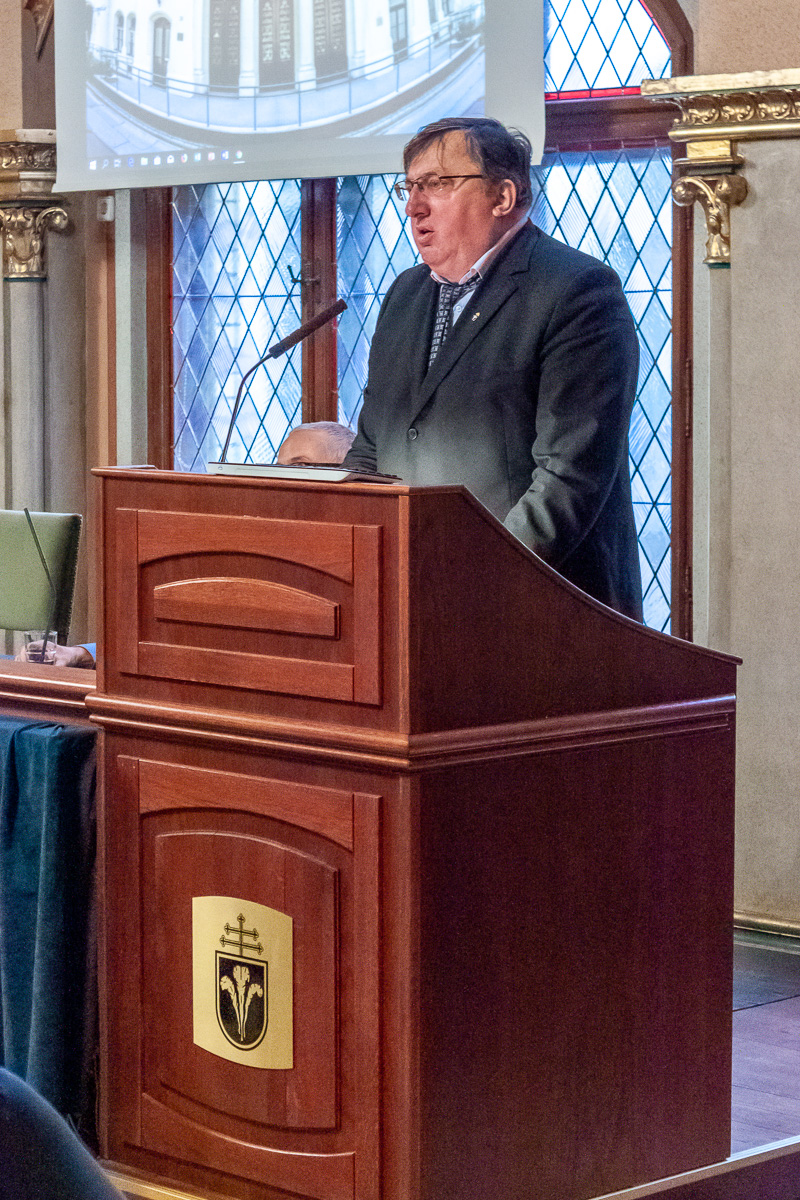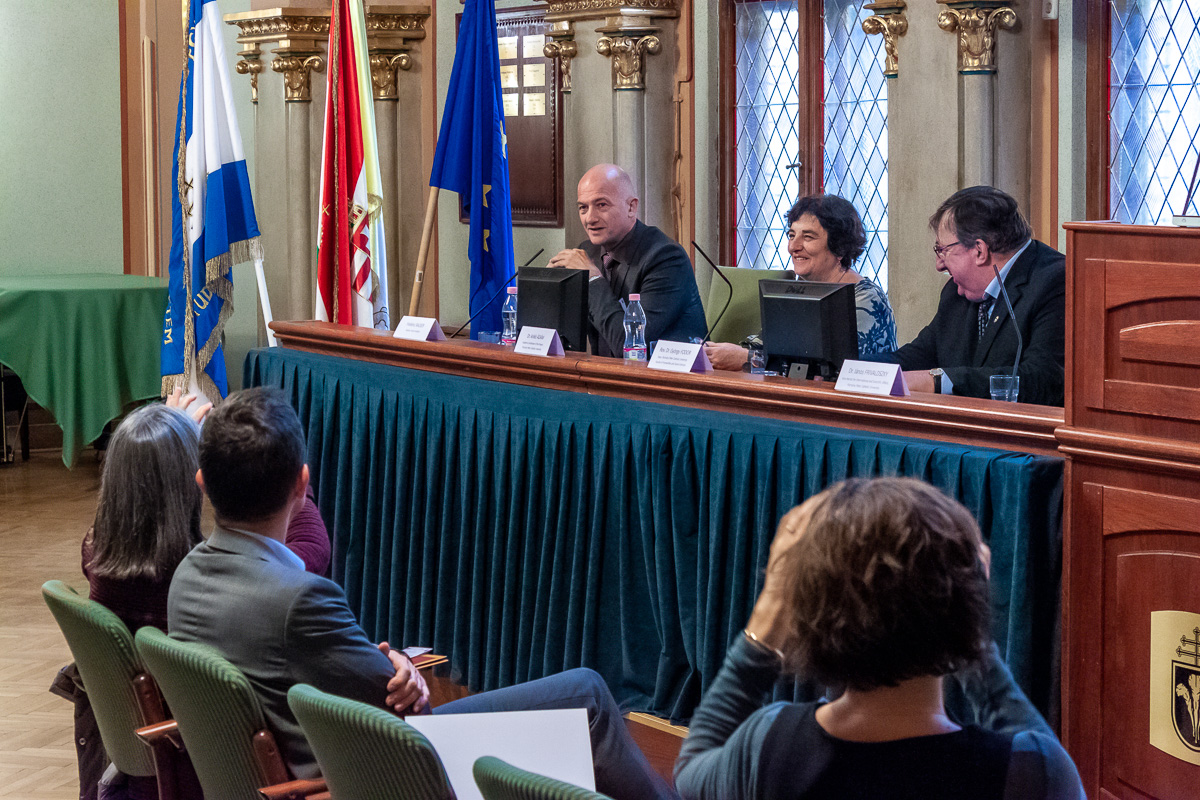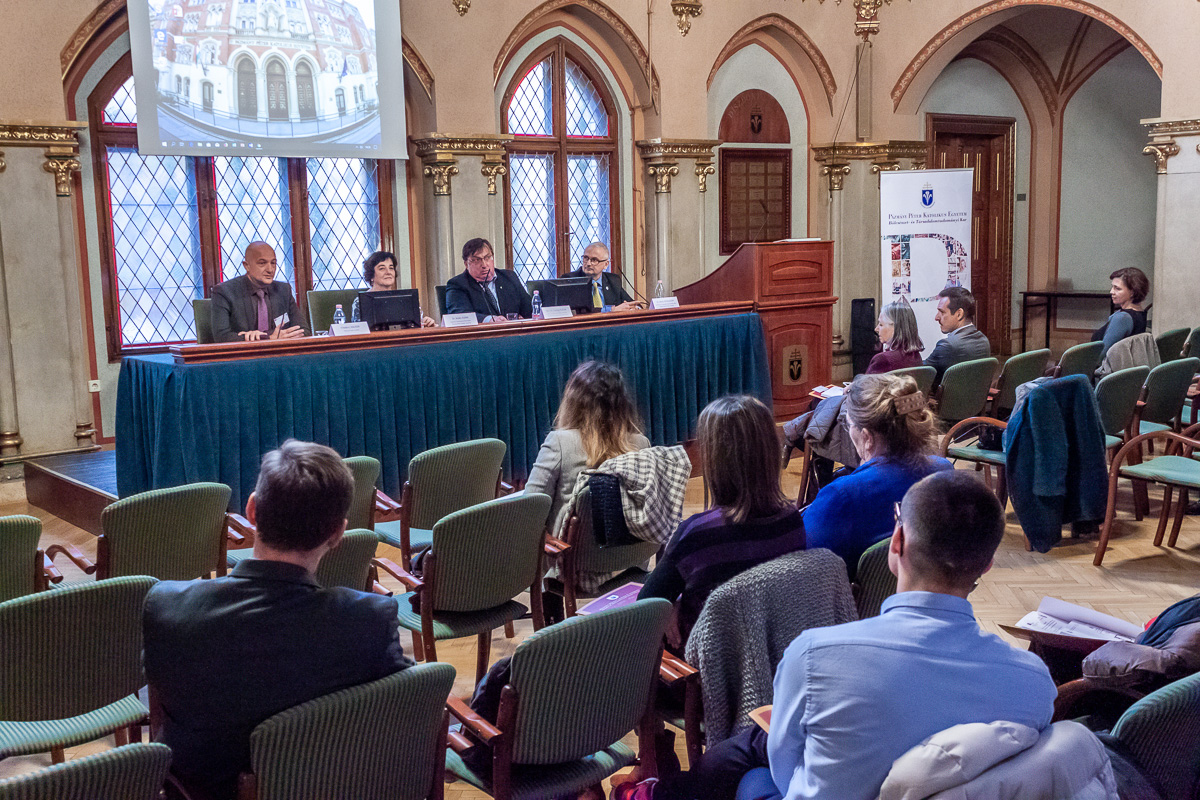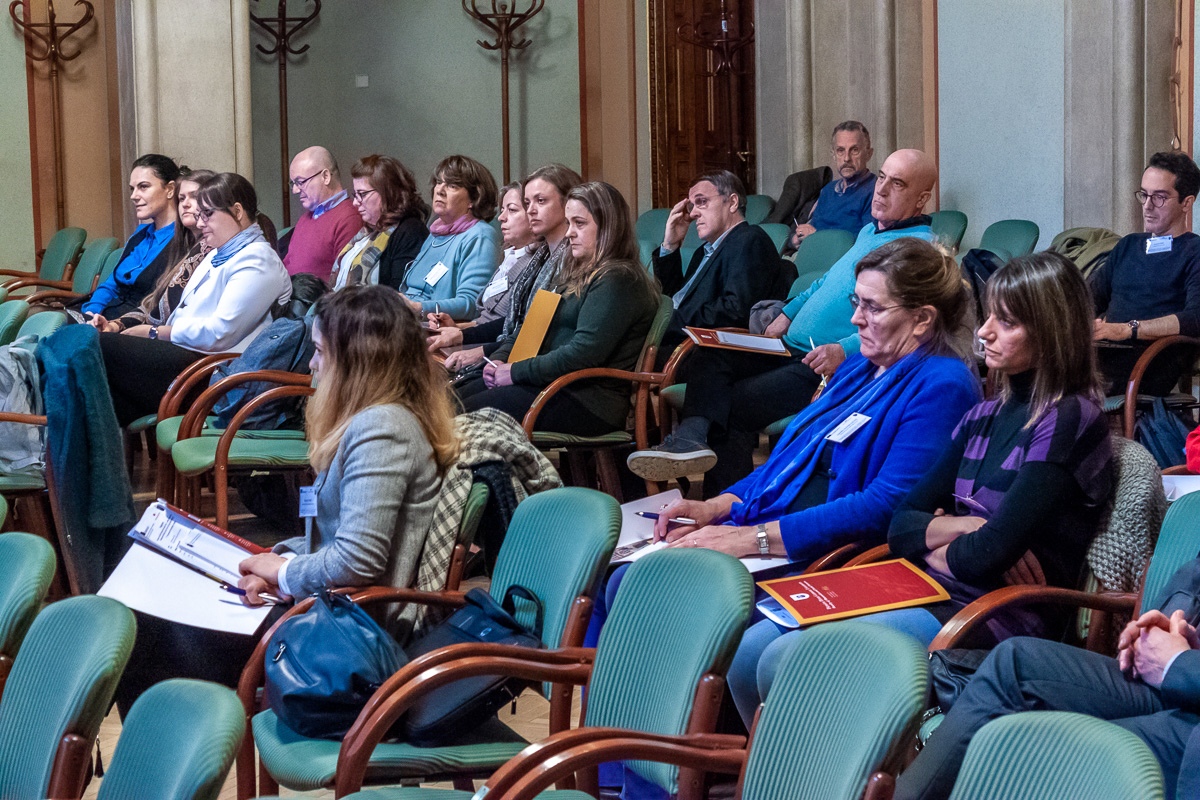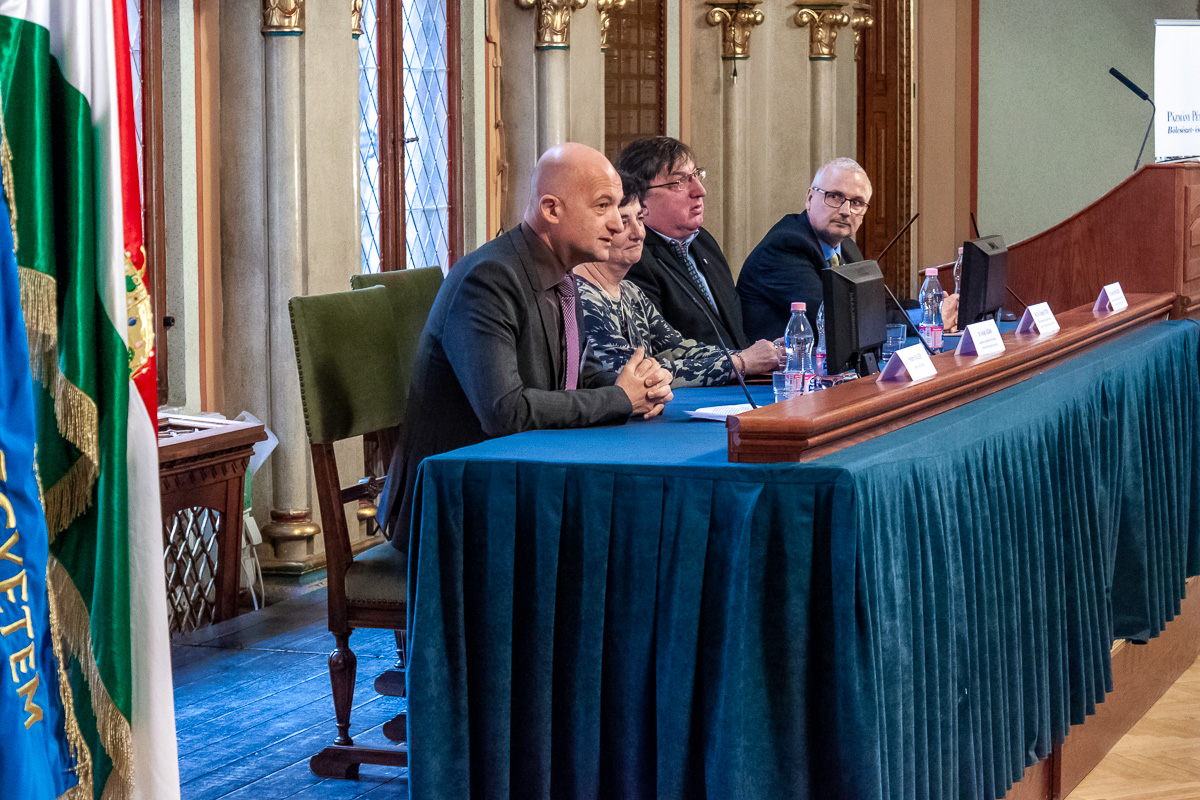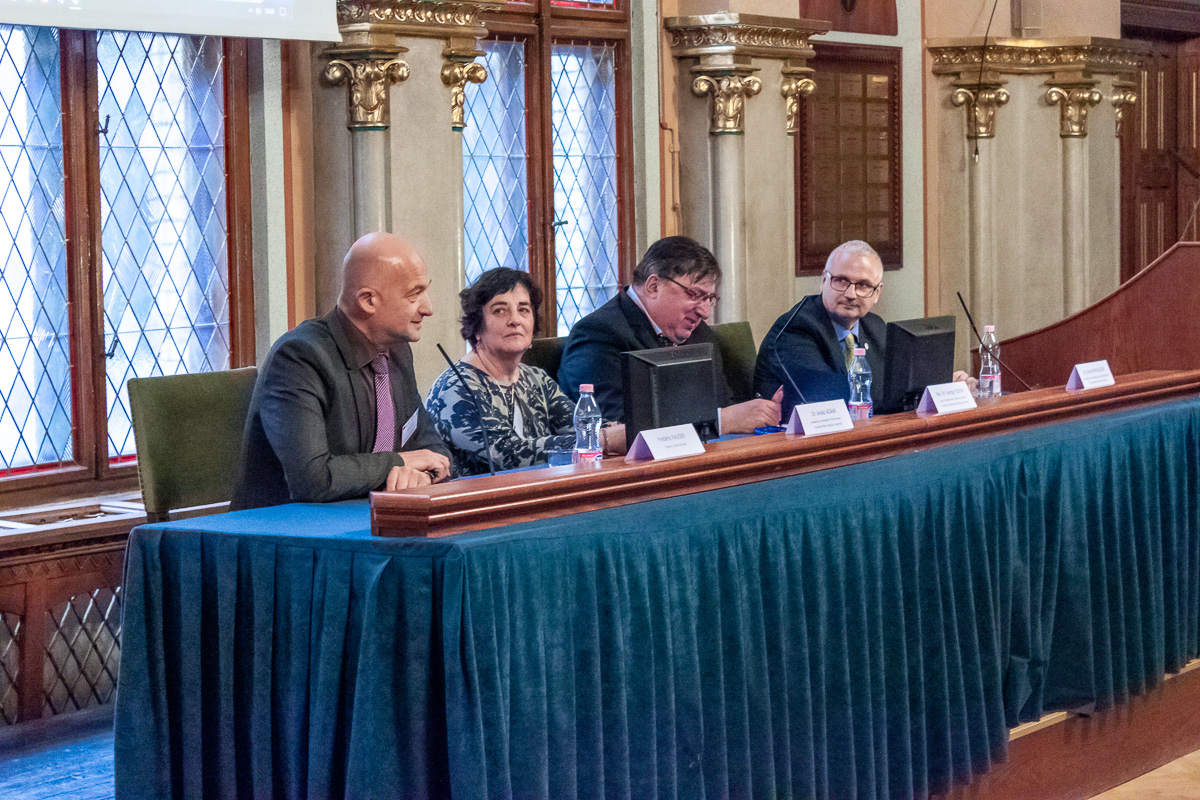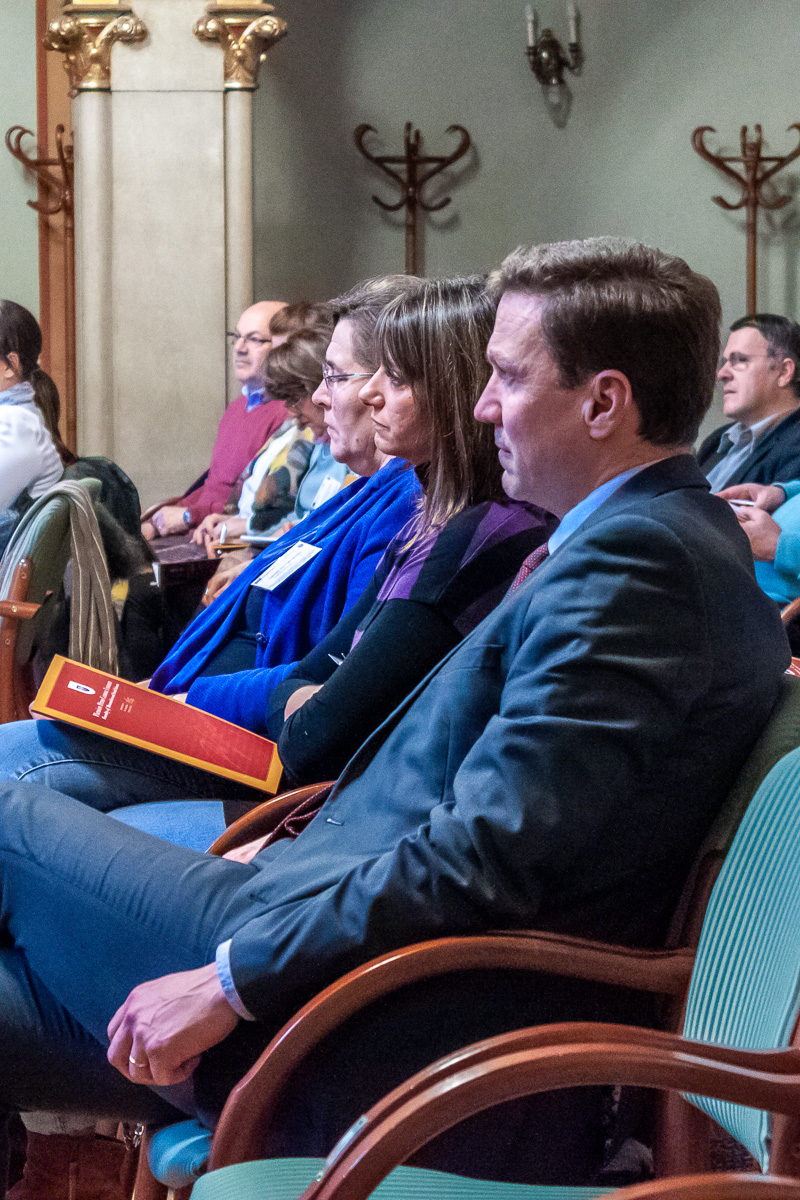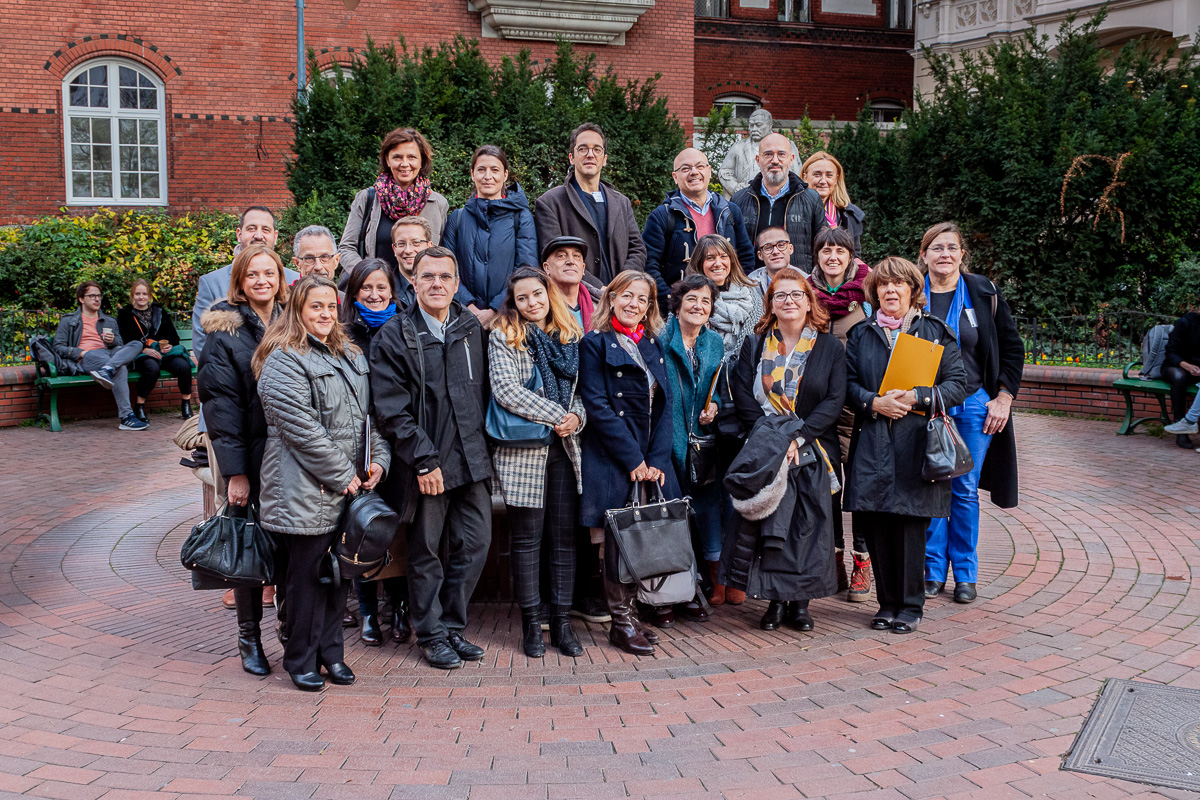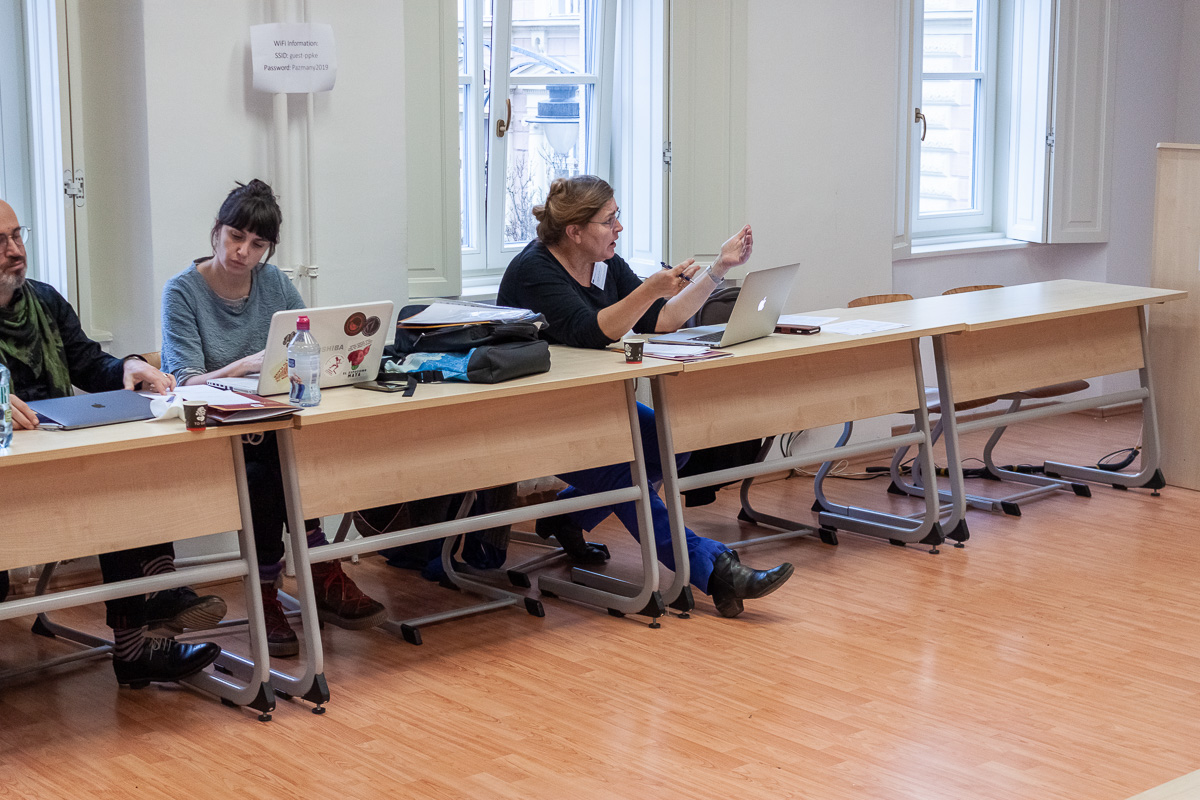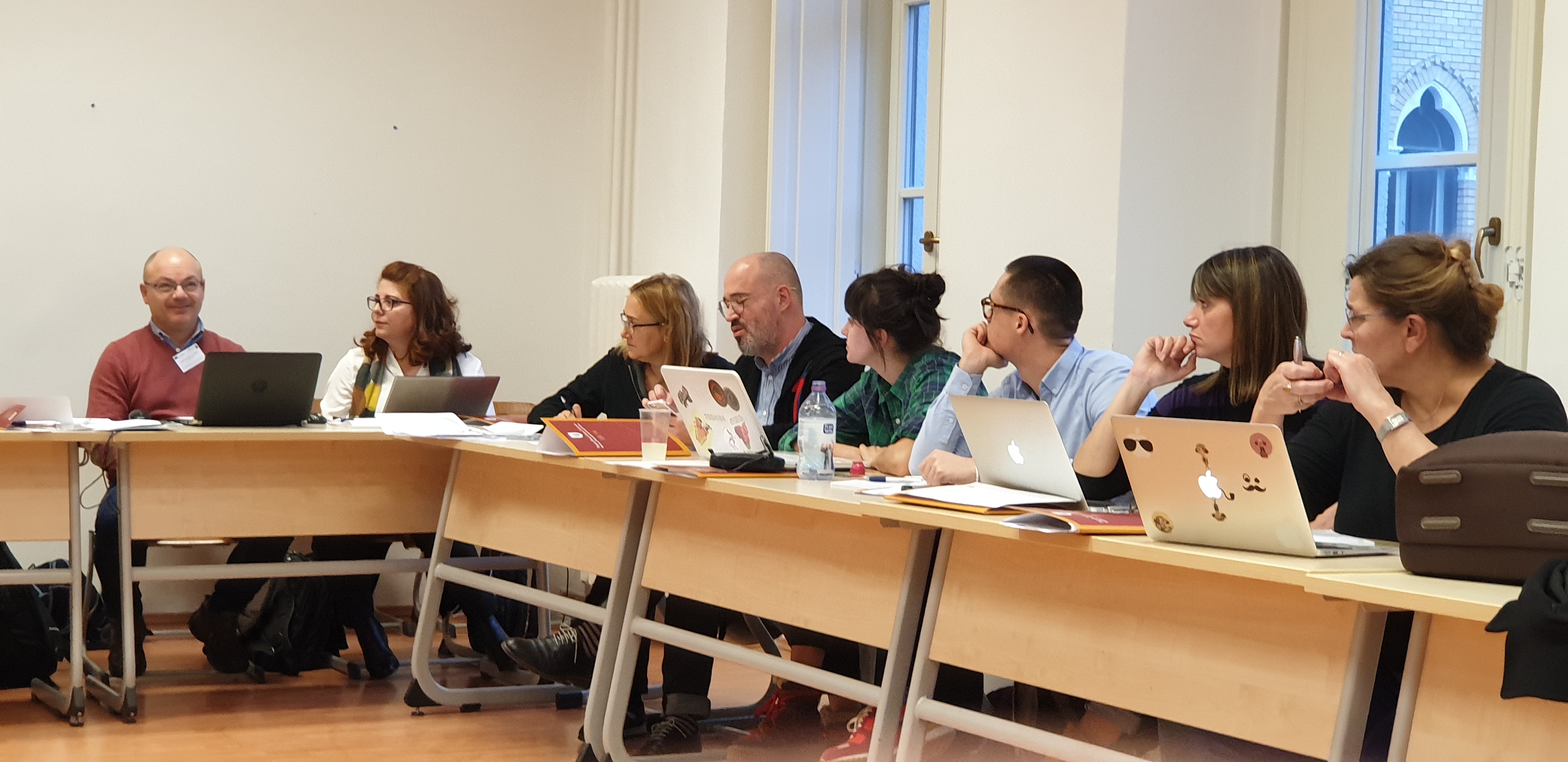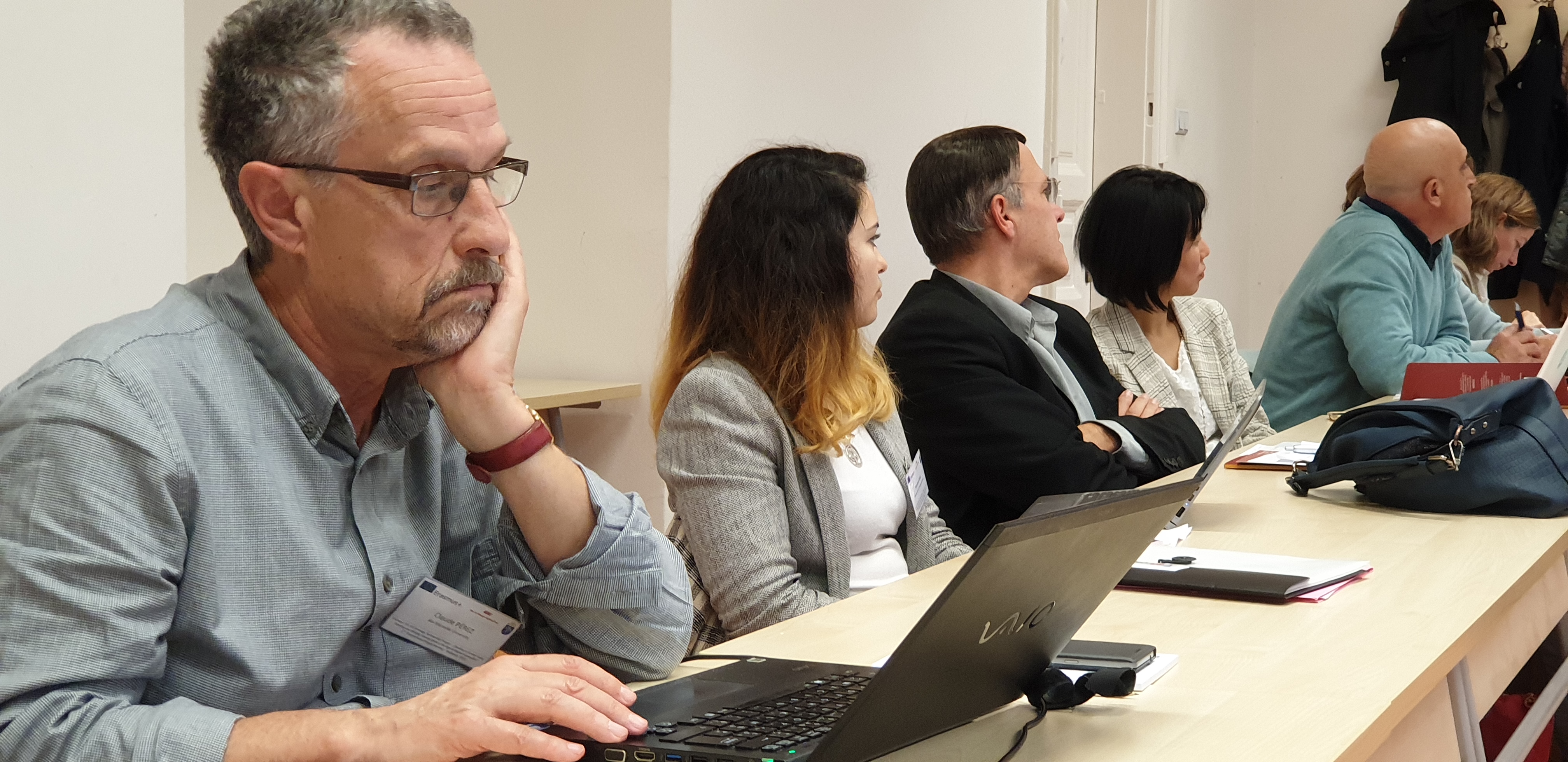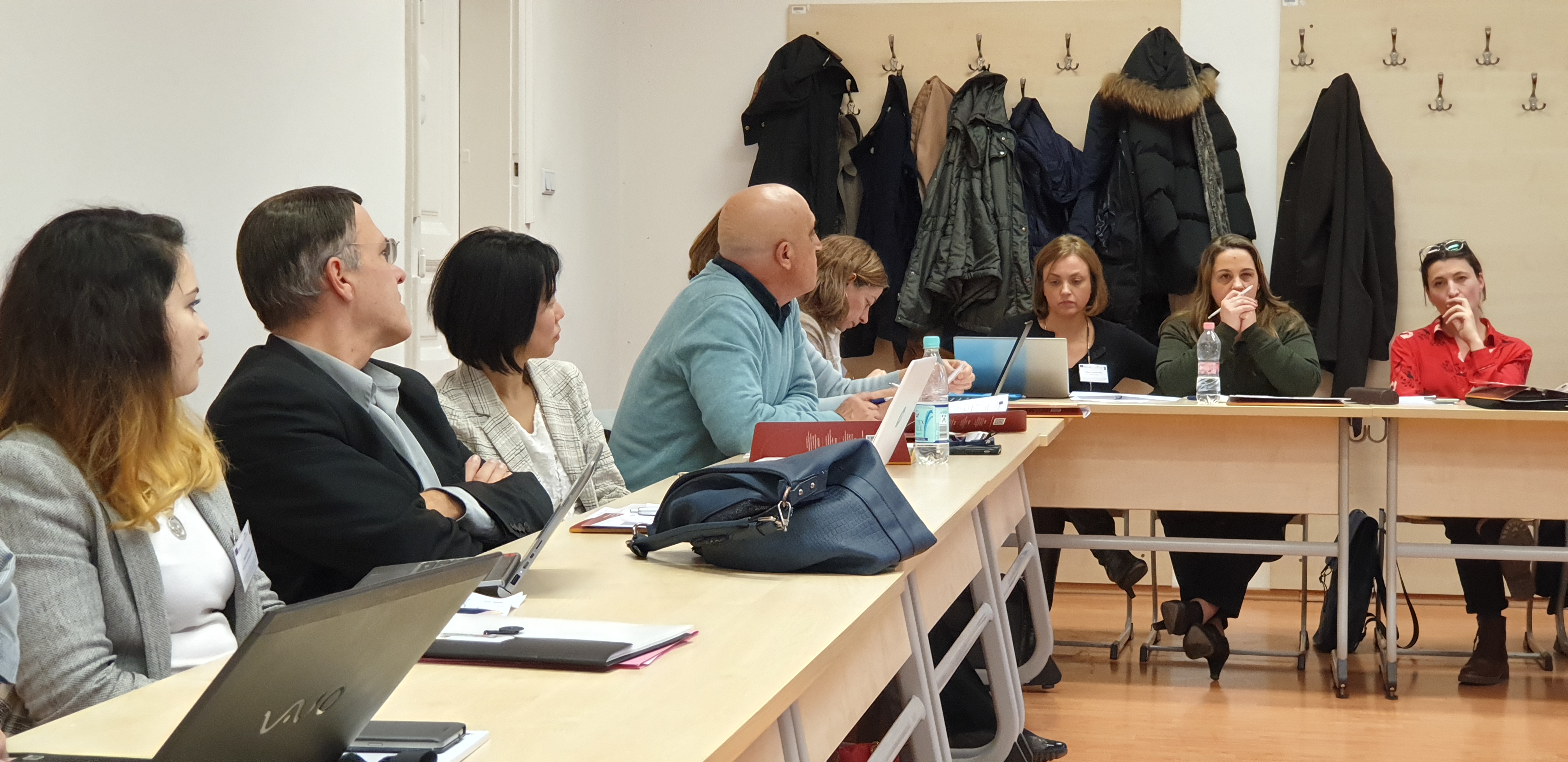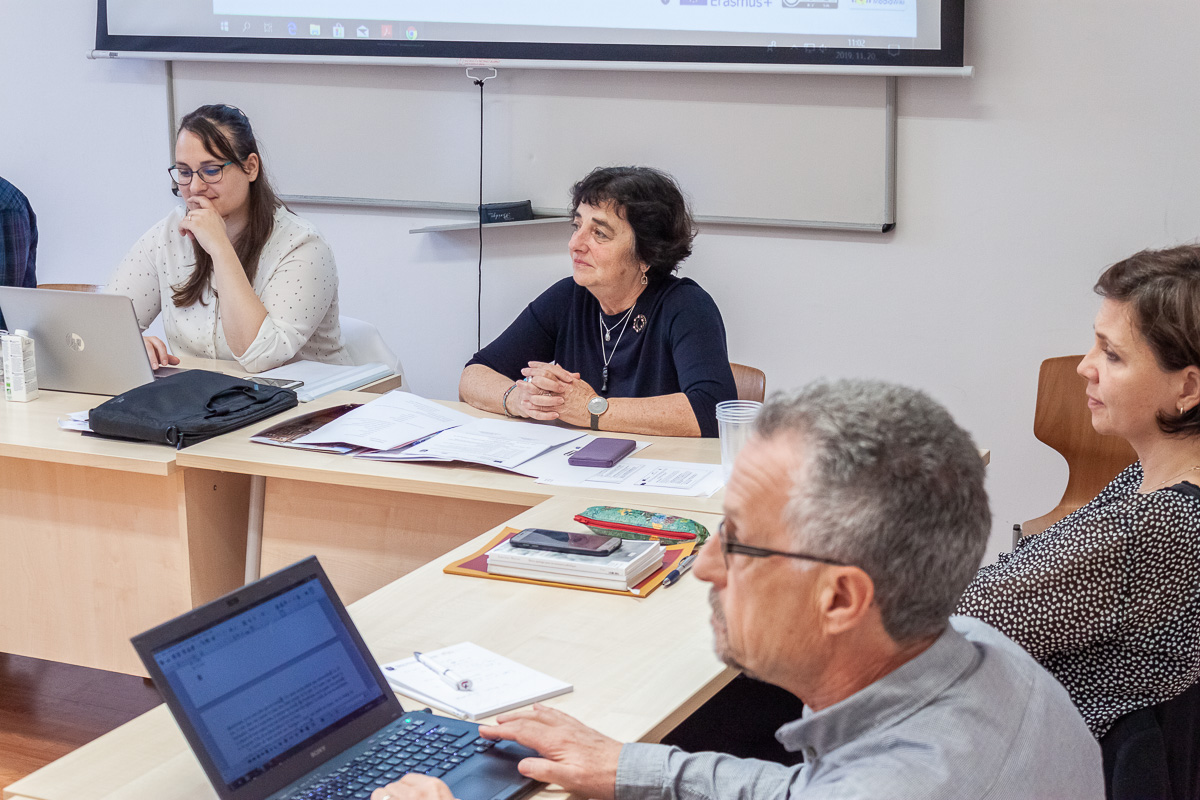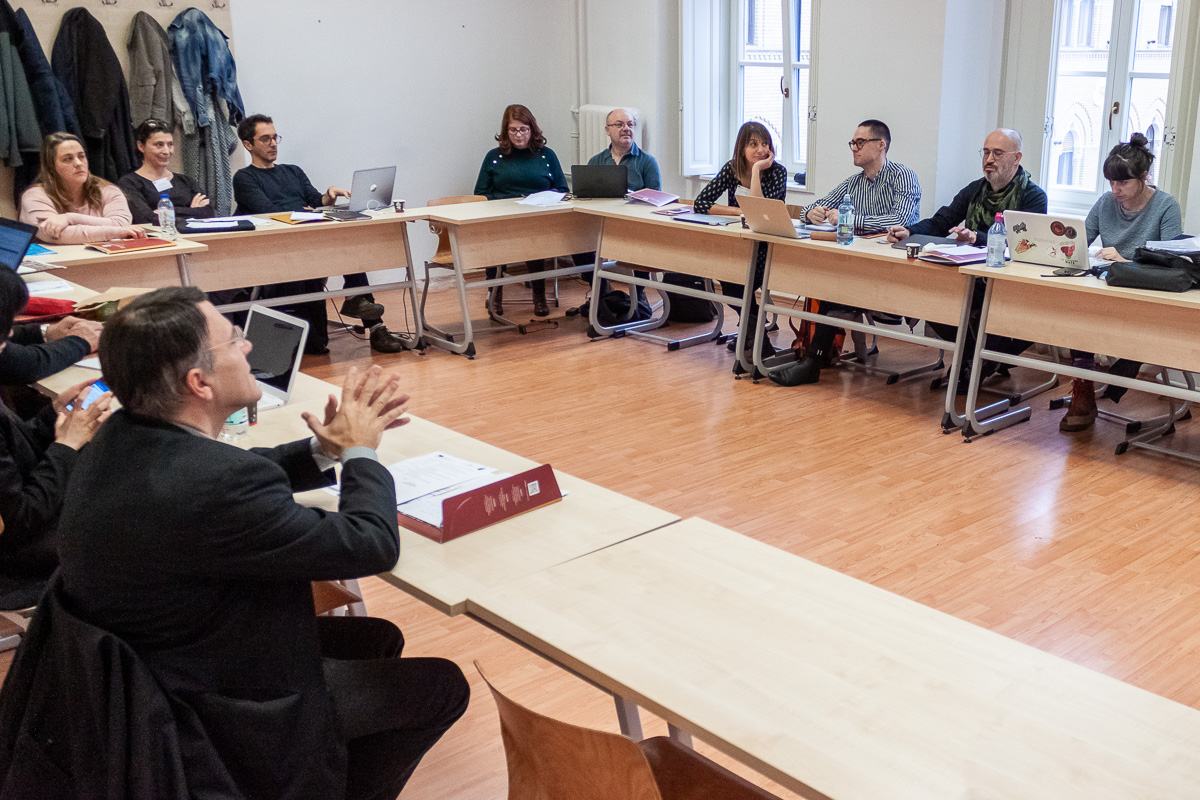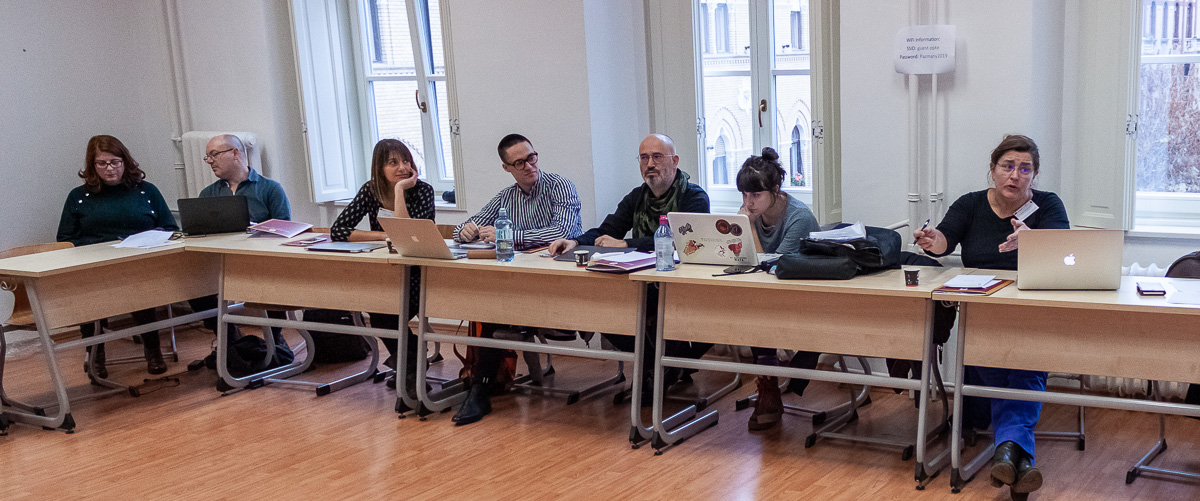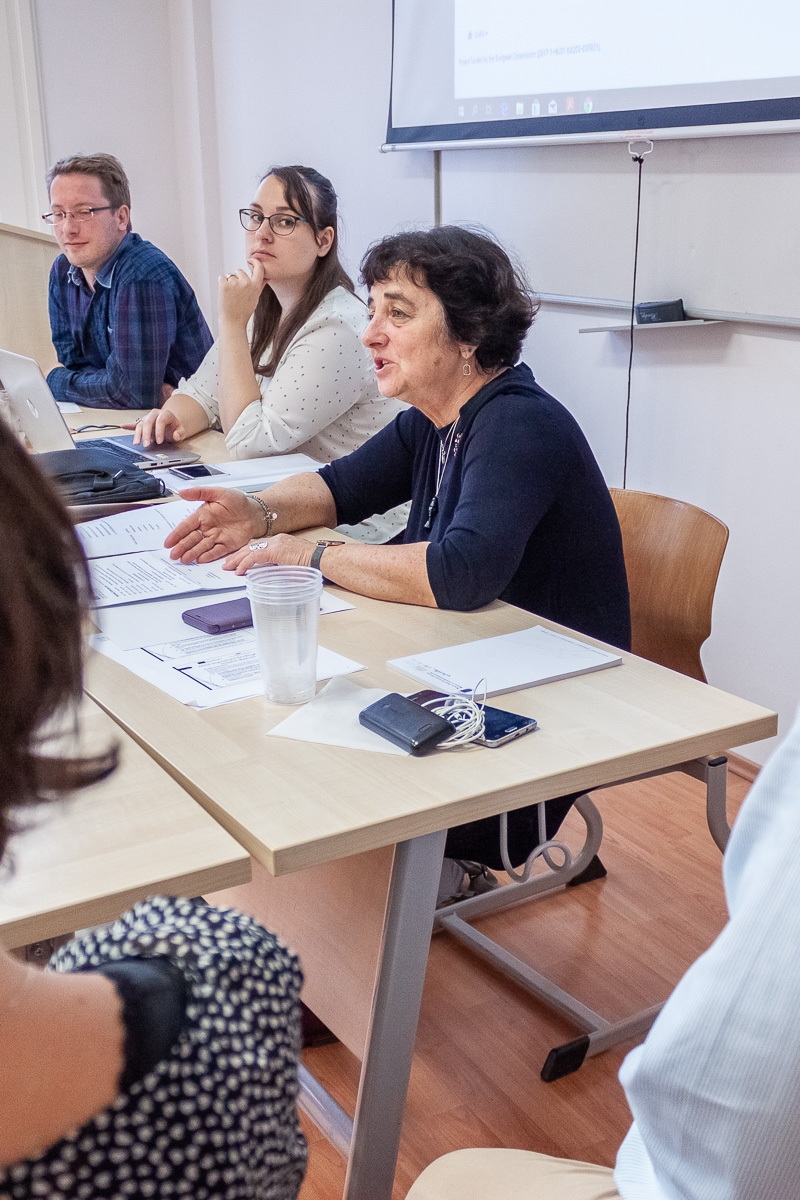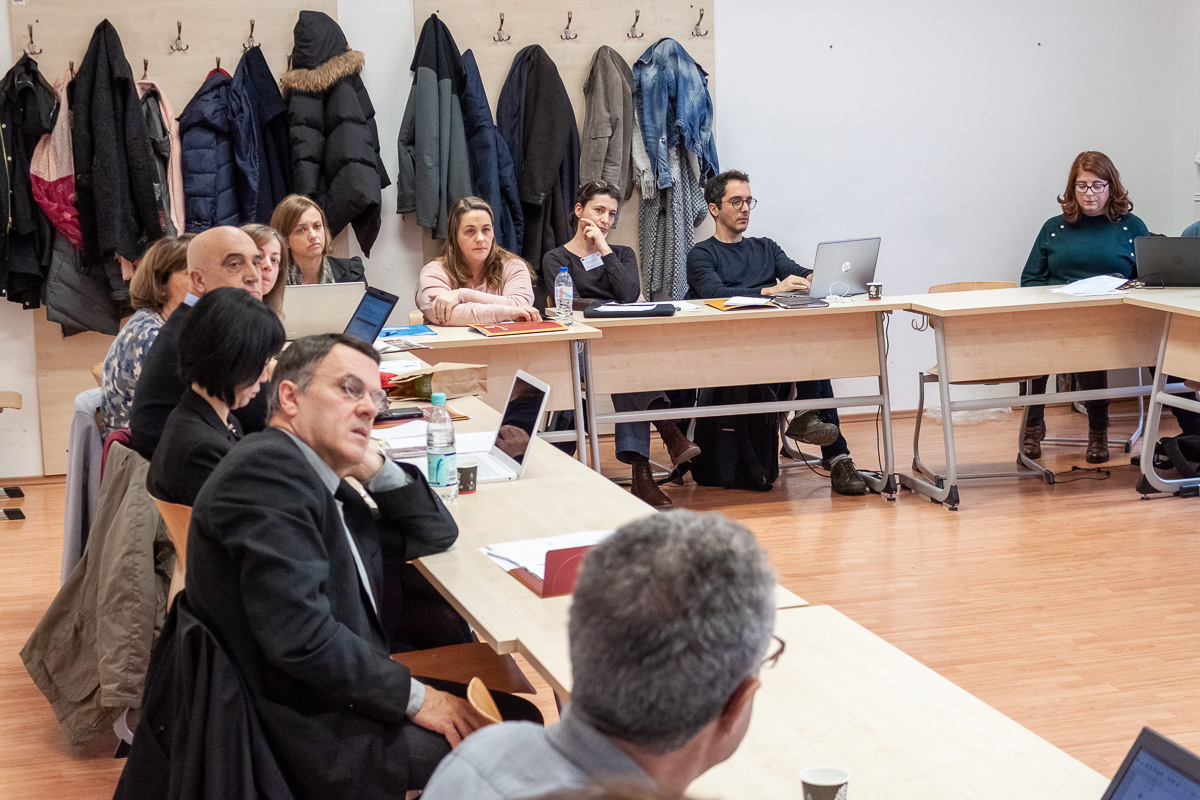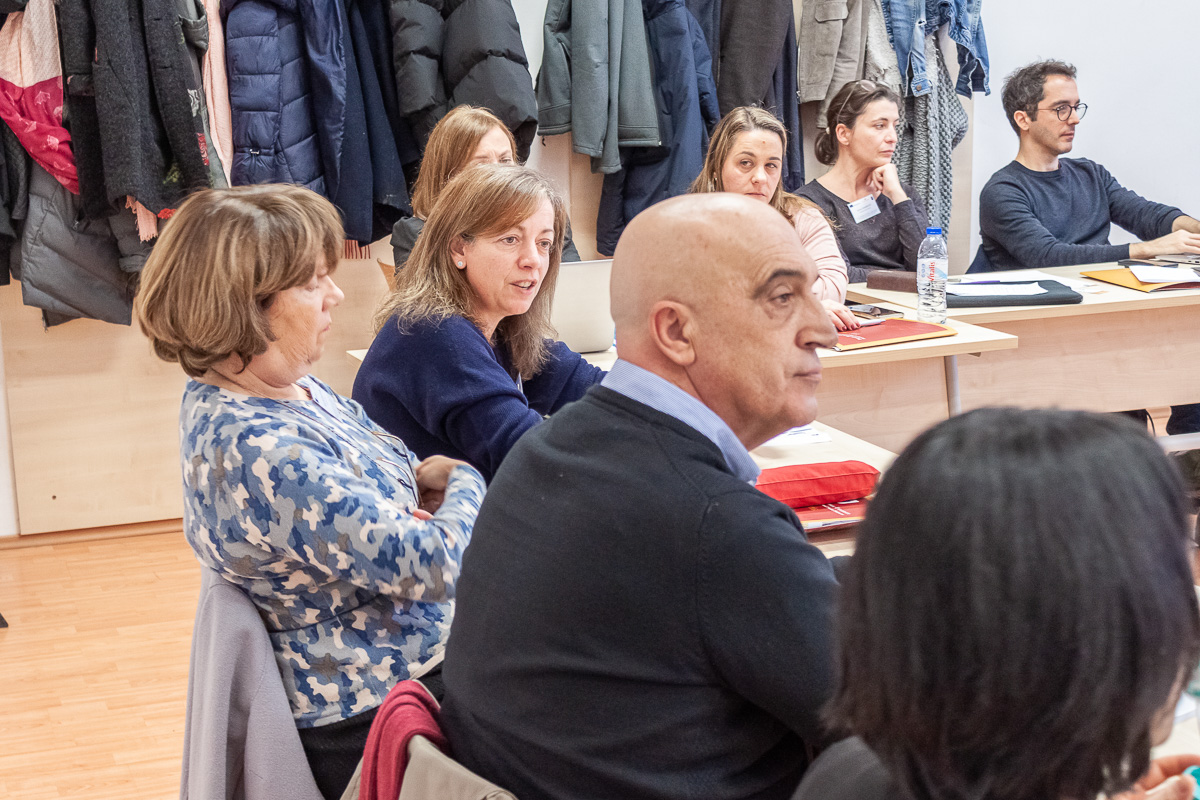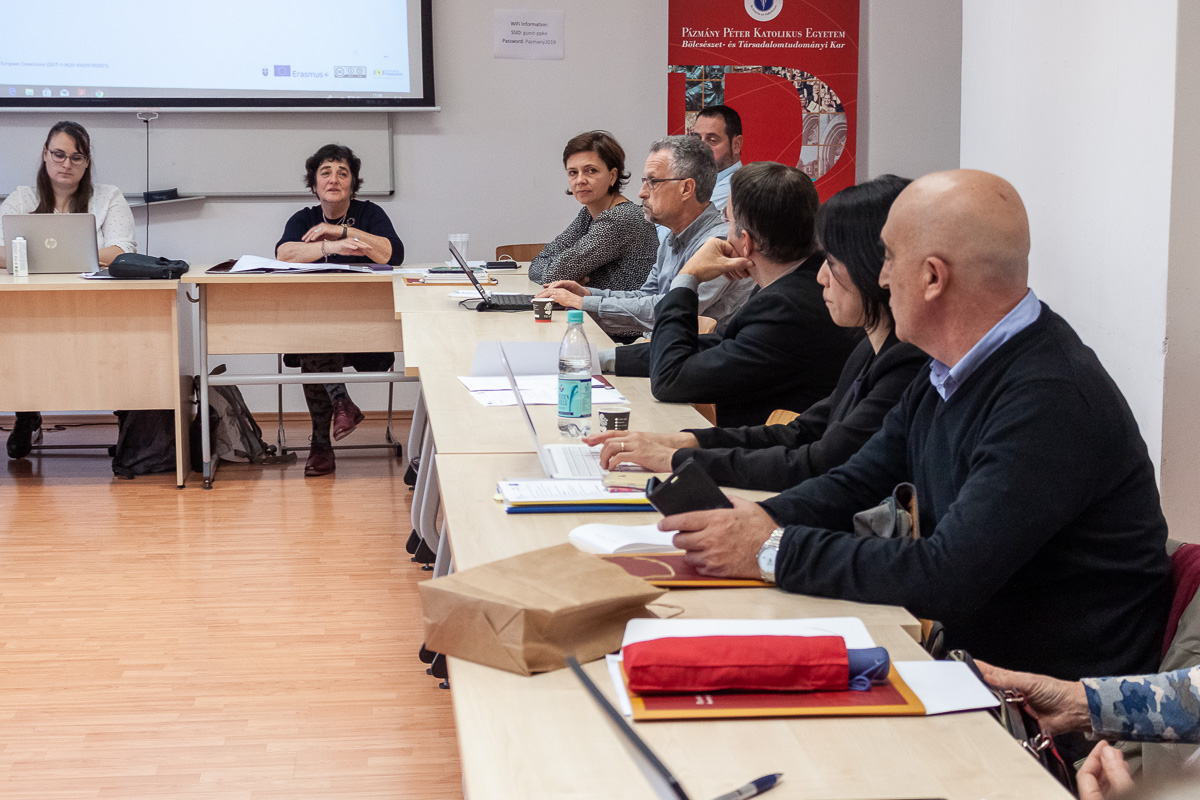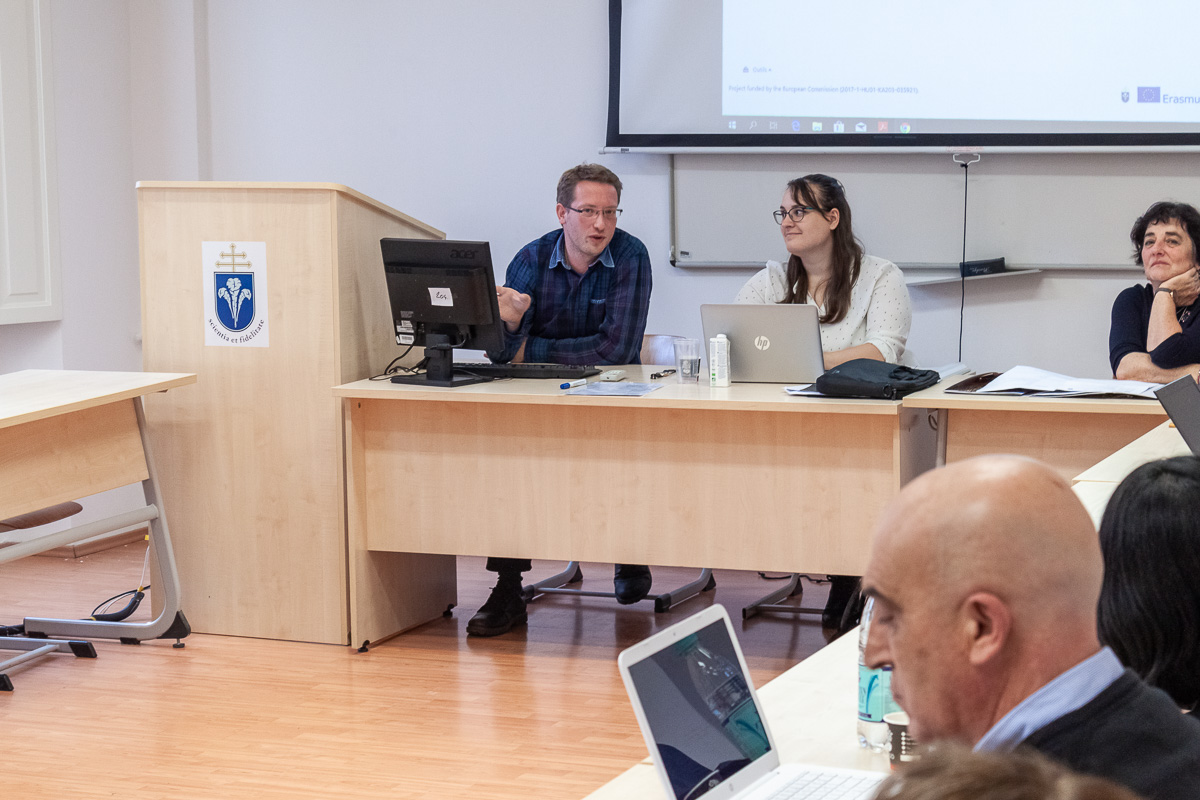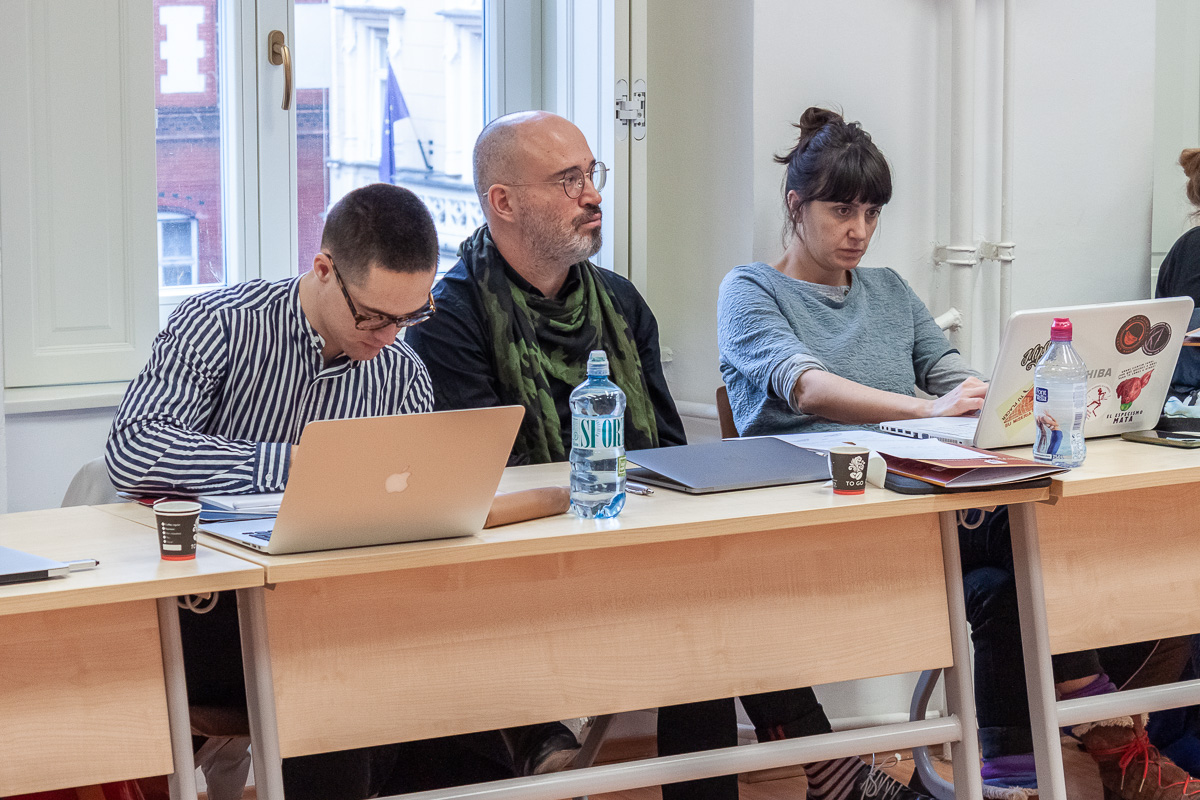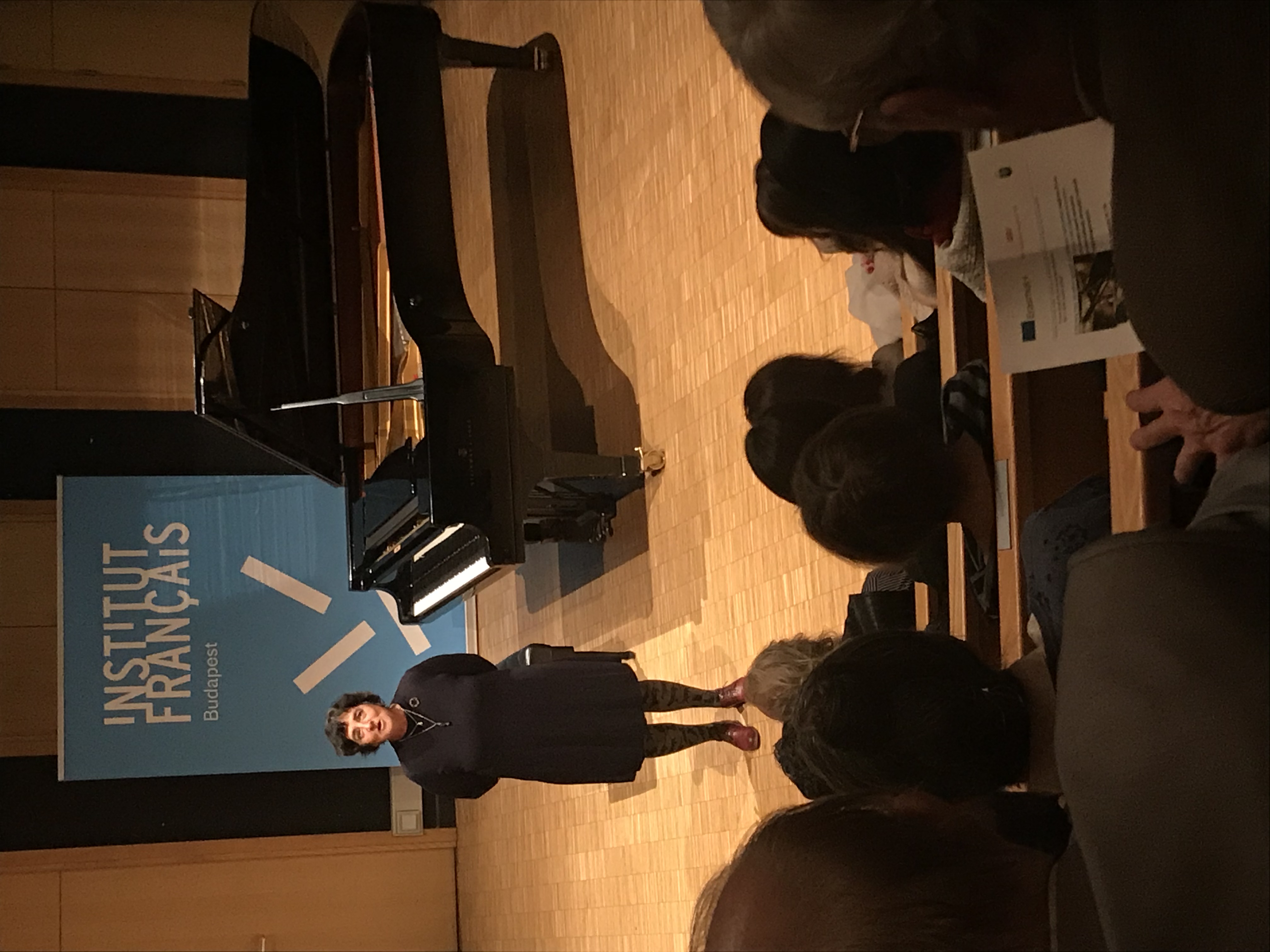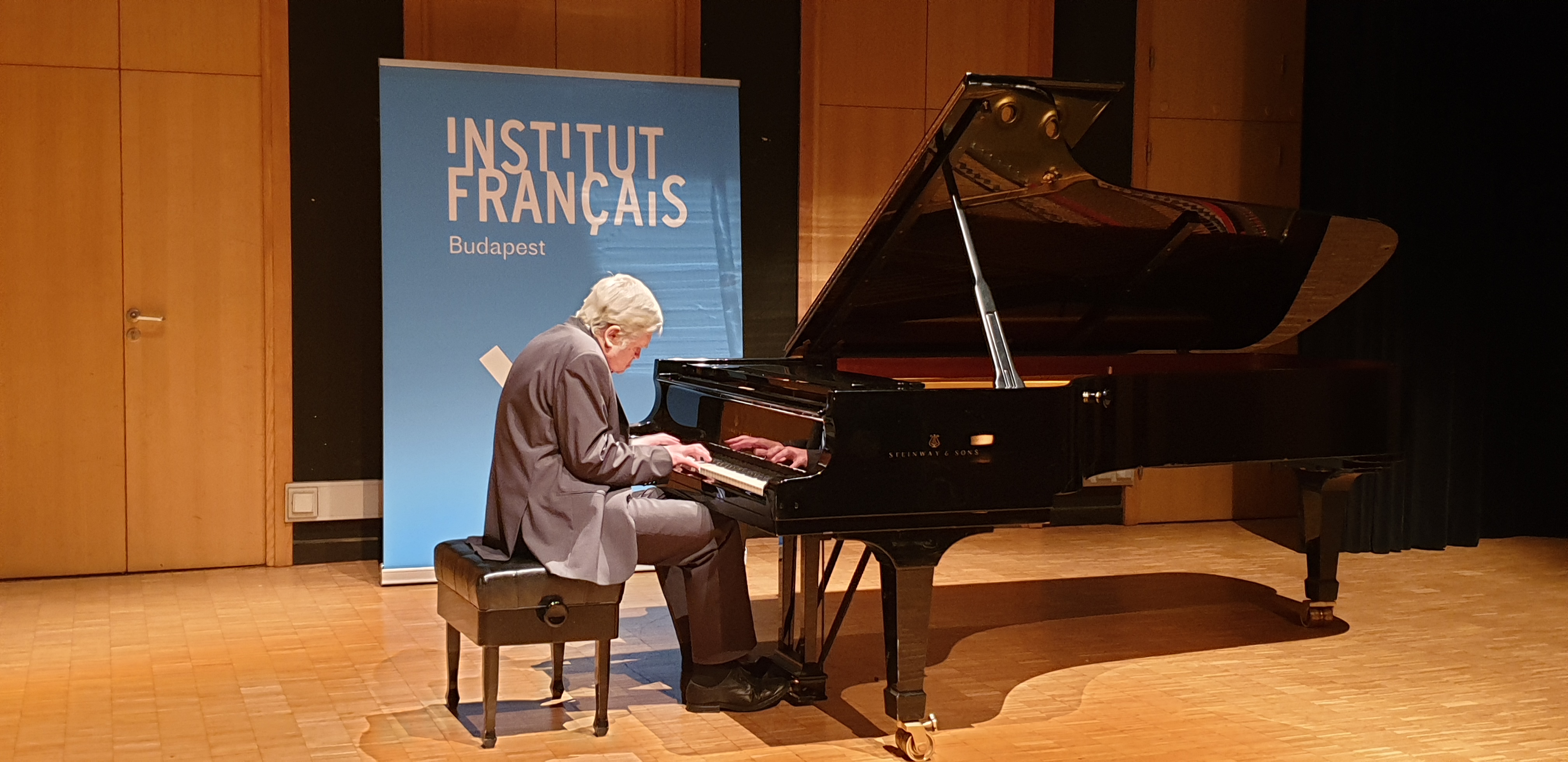Events during the Erasmus+ project
Meetings, Intensive Programmes, Workshops
TPM1 · Transnational Project Meeting 1
7-8 February 2018 Meeting | Pázmány Péter Catholic University
The Partnership's first Transnational Project Meeting (TPM) was organized by the Coordinator, Pázmány Péter Catholic University and took place in Budapest on 6-8 February 2018. The main goal of the meeting was to officially launch the project. Besides this, setting up the Administrative and Academic committees, which are responsible for the implementation of the project, was also among the purposes of this event.
The first day of the event was dedicated to the administrative issues, while Day 2 dealt with the academic questions. Thus on Day 1 the agenda was the following: registration followed by the opening ceremony, which was opened by the Rector of PPCU; presentations were held on the project itself, the Coordinator institute and the financial and administrative background of the project. Further presentations were held by the Coordinator on project management and communication including dissemination, sustainability and reporting obligations of the project. At the end of the day the members of the two committees were elected with one administrative and one academic delegate from each partner.
On Day 2 all the academic issues were discussed among the Partnership. Before the closure of the event one of the representatives of Computer Science and Control of the Hungarian Academy of Sciences (SZTAKI), presented the plan of the RAS, which will be the Intellectual Output of the Project, moreover gave a brief overview on the history of annotation and digital typesetting.
C1 · Read and Live the Romanesque
2-13 July 2018 Intensive Programme | Université de Picardie Jules Verne
In narratives, in poetry, or in theater, fiction relies on imagination. The French word “romanesque” particularly alludes to prose narrative, representing a particular individual experiencing more or less likely (with a big turn at the end of the XVIIth century) adventures. What is the relationship between such fictions and the life? Life is nowadays thought by philosophers, scientists, who can help the literary critics to understand how the world nourishes fiction, and how fiction, in return, changes the readers.
That was the base of different studies, made by professors, lecturers and PhD-students or Master-students, who could experience great exchanges together during this 12-day IP: morning sessions where held by professors coming from 12 European universities (Aix-Marseille, Amiens, Antwerpen, Aveiro, Budapest, Cadix, Lisboa, Paris12-Créteil, Paris10-Nanterre, Porto, Reims, Valencia) and afternoon sessions by 18 students (coming from the same universities, plus Luxembourg); all could also share cultural activities, such as visit of the Amiens Cathedra and Hortillonnages, or walks and lunchs in the city and at the sea-side of Picardie. They all proposed various ways to understand what “life” means in French fiction of different times and different “genres” (novels, short stories, tales, auto fiction, historic fiction...), and discussed the ways it could be commented and spread through traditionnal books or other medias, particularly in the field of digital humanities. Historical, biographical, narratological, gender or postcolonial-oriented approaches, and various X-studies approaches were discussed, and digital tools to access old literary work, or worldwide researches have been mentioned.
The sessions took place in 4 different places, all open to a broad audience: Logis du Roy, Bibliothèque Louis Aragon, Pôle cathédrale de l'Université in Amiens, maison de l'Université à Saint-Valery-sur-Somme.
C2 · Too many notes. Glossing Literature Today · Antwerp Digital Days
10-16 December 2018 Workshop | University of Antwerp
The digital revolution has come, and we are learning to live with it. Often in euphoria, sometimes in doubt. All this novelty - the Internet, “megadata”, distant reading, digital print - has changed our habits and practice at faculties of arts, among other places. We at the faculty of arts however also concern ourselves with the continuity of research. What do “men of letters” become in the era of Facebook, Twitter, Snapchat? How to read a text? What is a text? Why are our texts fragile, or even evanescent? Has the moment come to draw up a provisional balance sheet for an evolution still in progress?
C3 · Reading and Writing the Cross-Border Today, in Romanesque Fiction and Elsewhere
2-13 July 2019 Intensive Programme | University of Cadiz
Nowadays, new technologies offer plenty of means of communication that can be used in every single place and time. Individualism and research effectiveness are being simultaneously promoted by those new technologies, which join together all generations, diverse mentalities and speeches that supposedly take along the truth neither unfiltered, nor with academic authentication. It is clear that through these new communicative approaches, not only the behaviour and the relationship with the other is called into question, but also encourage an idea of “elsewhere” that otherwise would be conceptualised. In such way, going everywhere in the world through the Internet without making otherwise new knowledge opens us a multidimensional imaginary without any kind of geographical footprint (Wolton told in the epoch about the collective loneliness of internet users...). Everything becomes possible or at least it seems so because the notion of space is not perceived in the same way anymore: what seemed to be far away is nearer and the surrounding space fades away until it becomes invisible in some cases. In the aftermath of these conceptual changes sustained by technology, the Romanesque creation reveals the difficulty of permanence already in some 19th and 20th writers, in response to a new agenda that raises with great shortcuts linked to the ephemeral ticks of science. However, they do not conclude on what should be defined as the fiction of the 21st century because they produce changes in the perception of space and time already present in the 19th century. In other words, “speaking fiction (“Romanesque”)” nowadays, or the Romanesque imagination the essence of new technologies sometimes amounts to saying and turning around on a vital impulse nourished by memories, as Apollinaire did in his solemn poem Cor de chasse. Caught in this temporal and antagonistic in-between, human existence seems destined to position itself between a desire for openness or a fear of confinement, an underlying comings and goings that cease to be so when replaced by this technological beyond that relegates the novelistic universe and the scope of the characters' discourse to a second level.
“Reading and Writing the Cross-Border Today, in Romanesque Fiction and Elsewhere” can be then
perceived as the ambivalence that is proposed by the technological space or as a construction of the imaginary arranged in
the haste of scenes or the reported speech of characters. In this sense, the argument claims to be appropriate for various
interpretative approaches based on:
1/ the arrival of new technologies changes, among other things, our perception of space and time;
2/ the perception of space and time is also expressed in fiction, and therefore in the novel; perhaps fiction is the best way to express how humans experience their presence in time and space;
3/ At this point, reading today's novels, especially those that speak of openness and closure, both for time and space, can inform us about our contemporary universe.
As a reminder, there is a rather important tradition on the devices of “fence”, “closure”, clausule etc. in poetics, see in particular the works of Hamon, and also Kermode, Mortimer, The Sens of an ending.
C4 · Urbi et Orbi. Reading Cities, Living in Literature
16-20 October 2019 Workshop | University of Aveiro
Among the “chronotopes” (Bakhtin) of literature, cities are undoubtedly to be favoured. The city is a theme in literature but also a form. No doubt one can “inhabit” a text as one lives in a city. If important works have been devoted to “urban semiology” (Barthes), it remains, however, to question the strange connection that is made when, in a text, the theme of the city comes to infer with the form of text. To imagine a text, a story, a fiction as another kind of urban fabric, is to attribute to readability, it is to organize the space of the text as a habitable page. “Old Paris is gone,” writes the poet who then makes us visit fascinating ruins. Another adds: “And at dawn, armed with ardent patience, we will enter the splendid cities.” Cities clearly make poets, writers, novelists dream. Is writing anything more than tirelessly surveying their avenues, boulevards, alleys, dead ends? Real cities, fictional places. From topology to mythology, there is, in short, only one step. In the digital age, we also have at our disposal very powerful modelling tools (“virtual reality”) allowing us to understand otherwise the complexity of literary urbanity. The text is then a starting point, a stimulus. The computer helps me to simulate, to visualize the space of the novel, the fiction. I walk in Joyce's Dublin, Balzac's Paris, Dos Passos's New York, Pessoa's Lisbon. The city is a form, I visualize this form and I live my reading as another kind of video game. The city is a place of life, I live my life in the fascinating cities of literature.
Our meeting will therefore aim to reflect on the European cities and others, these loci memoriae that so many writers have built in their books (where we walk with pleasure or worry, in the footsteps of Baudelaire, Joyce, Modiano, Michel Butor, Nicolas Bouvier, Sebald, Lilar, Syvie Germain, Pessoa, Lobo Antunes, and how many others), now looking for new territories of readability, where spaces of memory coexist with those innovation. We can speak of the city “in terms of meaning”; the digital now traces new European urban literary cartographies that it is necessary to dig. This meeting, we hope, will allow us to better highlight the different contributions to the work, at this moment, for the construction of a new literary history, European, and whose shape and figure of the “city universe” would be a keystone.
TPM2 · Transnational Project Meeting 2
19-20 November 2019 Meeting | Pázmány Péter Catholic University
Our strategic project team was trying to remember things past and explore future events during the second Transnational Project Meeting from 19 to 20 November 2019 in Budapest; joint work started two years ago with the participation of 13 universities across Europe, the final third of which we have reached. Besides the overview of work done so far in the frame of the project focusing on the popularization of literature and searching for responses to new reading strategies, we revised the tasks ahead of the consortium in the final third of the funded period of the project.
The two-day event kicked off with the English words of Prof. Dr. János Frivaldszky, Vice-Rector for International and Scientific Affairs in the Ceremonial Hall “St. John Paul the 2nd”, followed by a greeting in French from Prof. Dr. György Fodor, Dean of the Faculty of Humanities and Social Sciences. Monsieur Fréderic Rauser, Director of the French Institute in Budapest, the representative of French cultural diplomacy, who had attended our project events for the second time spoke highly and encouragingly about the program to the audience. Dr. Anikó Ádám Head of the Institute of Romance Studies, the host of the event, and coordinator of the project rounded off the opening ceremony by introducing the project and summarizing achievements.
Following the opening ceremony, participants resumed intensive work till the early evening. Coordinators (i.e. PPCU) evaluated conclusions of our progress and interim reports earlier during the project, and the monitoring visit by the Hungarian National Agency (i.e. Tempus Public Foundation) early November 2019.
We made an overview of the tasks ahead of us based on these reflections, and the commitments we made in our application in 2017. During the mainly administrative-focused sessions, we reviewed the finances and the documentation of the project, outlined internal and external quality assurance duties, and our dissemination tasks, which are largely emphasized by the European Commission. The evening concluded with a delicious dinner in Károlyi Restaurant.
On the second day of the meeting, the discussion of academic topics came forward, namely the intellectual output and related issues, and the administrative and professional aspects of the learning, teaching, training (LTT) activities and the multiplier event in the final period of the project. Also, the representatives of the Univesrsitat de València and the Universidade do Porto introduced the locations and proposed programmes of the LTT’s. The event was very successful both in terms of administrative and academic aspects. It ended with a magnificent cultural programme: after the project-introduction from Dr. Anikó Ádám, 130 participants attended the concert of piano artist László Baranyay in the concert hall of the French Institute.
C5 · Mutation/s
7-13 September 2020 Intensive Programme | University of Valencia
Ces Journées d’Étude Internationales (Programme Intensif du Projet ERASMUS+ Reading in Europe today – Reading and Writing Literary Texts in the Age of Digital Humanities) visent à s’interroger sur les mutations du texte et de la lecture à partir des notions transversales d’hybridation, de métissage, voire de marginalité, tant du point de vue de l’objet textuel en soi que du contenu qu’il véhicule. En effet, les rapides mutations sociales et technologiques du monde actuel, marquées par une succession de crises et de reculs, l’ébranlement de certains principes de nos sociétés occidentales et les phénomènes des migrations et de la mondialisation, liées à toute une révolution scientifique et technique propre de ce que l’on a convenu de nommer la « société de la connaissance » nous invitent à revisiter les objets textuels, leur lecture et leur réception en tant que témoins de ces changements, ces nouveaux rites et pratiques, constitutifs de notre complexe et riche réalité d’aujourd’hui. Les deux questions principales de notre rencontre internationale tourneront donc autour des mutations et/ou des hybridations du texte littéraire tant dans sa forme que dans son contenu (intergénéricité, intermédialité, intertextualité, interculturalité…), à l’époque contemporaine principalement sans exclure, pour autant, une approche historique ou diachronique, voire comparatiste. En effet, si le binôme orthodoxie/hétérodoxie a efficacement servi à cataloguer et à définir des phénomènes littéraires et artistiques (avant-gardes, discours de rupture, discours subalternes…), on peut affirmer, de nos jours, que ce qui relève du « mutant » a réussi à se constituer en un domaine propre où émergent comme signes identitaires des concepts opérationnels associés tels qu’hybridation, métissage et marginalité convergeant dans une constante postmoderne qui consiste à définir et concevoir l’identité comme le fruit d’une superposition de couches ou encore comme une construction malléable, qualité qui peut être transférée au texte lui-même comme expression de cette réalité : corps mutants, identités mutantes, textes mutants. L’IP prendra une forme hybride avec des participations en présentiel et en distanciel. Elles se diviseront en conférences (professeur·e·s) et en communications (jeunes chercheur·e·s). Il y aura également des « Déambulations littéraires » afin de fomenter les lectures plurielles autour de la notion de « mutation » dans un contexte de découverte historique et culturelle.
C6 · The Pleasures of Reading: State(s) of the Art
17-19 September 2020 Workshop | University of Porto
Common sense tells us that to read a piece of literature is first and foremost of an act of pleasure (Compagnon 1998), and thus that in order to rehabilitate reading practices we would have to recover and renew the “plaisir du texte” (Barthes 1973), as well as the pleasures of reading broadly speaking. The ludic, ironic and citational nature of contemporary fiction, which puts us into playful dialogue with “an external reality that is always already literary and which exists for the sake of the reader” (Demoulin 1997: 11), does not necessarily diminish the pleasure of reading, but rather transforms and complicates it.
On the other hand, in an era conspicuously marked by the internet and social media, one notices the development of novel ways of reading, prompted by the appearance of new media, which foster a collaborative approach to writing, new forms of interactivity and sociability and, consequently, different ways of sharing with others the pleasures one derives from books.
Nicolas Ancion identifies different ways of reading literary texts: reading for pleasure, that is, recognizing and recreating the pre-existent and indefinite meaning of the text (criticism, reviews and research), reading as a duty (the academic institution) and reading for fun (the act of reading is more important than what is read, cf. Pennac 1992). Moreover, between pleasure and fun, we find a whole gamut of sensations (states) related to the act of reading and its particular individual and personal modalities, as well as the various reading media which one ought to consider and which may entail an unconfessed or unspeakable kind of reading (Bayard 2007).
Interlanguage translation, particularly in the European context, as well as intersemiotic and intermedial translation, disseminate and amplify that renewed pleasure of interdisciplinary literary reading, and make possible alternative modes of transmission, navigation and contamination (media, cinema, cartoons, etc.) (Müller 2006, Badir & Roelens 2007). Especially since the advent of digital media, not only the hedonistic aspect of the literary text is enhanced and redefined but also its intersemiotic, interartistic and interdisciplinary qualities, allowing us to (or even demanding that we) read / see / hear more, and projecting the text out into the world, making it possible to apprehend it in novel ways. As such, reading is tied to new forms of sociability and community, both conventional and digital, fostering the dissemination of reading practices, new forms that generate new and varied relations with literary texts, their authors and the critical-editorial sphere.
E1 · Multiplier Event – workshop and further education
26-27 October 2020 Multiplier Event | Pázmány Péter Catholic University
La Faculté des Sciences humaines et Sciences sociales de l’Université catholique Pázmány Péter a organisé en ligne un workshop et formation continue dans le cadre de l’événement multiplicateur du projet Lire et écrire des textes littéraires à l’époque des humanités numériques (Reading and Writing literary texts in the Age of Digital Humanities).
Les enseignants ont obtenu une attestation de participation au stage (8 heures par jour), utilisable dans le cadre de leur formation continue. Les étudiants-stagiaires de l’enseignement ont obtenu une attestation de participation à la formation (8 heures par jour), utilisable dans le cadre de leur portfolio.
Les conférences et les workshops ont été traduits en hongrois et en français simultanément.
Pendant les trois ans du déroulement du projet, les chercheurs français, portugais, espagnols,
luxembourgeois, belges et hongrois de 13 universités européennes, membres du groupe LEA
(Lire en Europe aujourd’hui), cherchaient à savoir quelles nouvelles stratégies de lecture se
créent, quelles nouvelles méthodes innovatrices peuvent être appliquées pour populariser la
lecture si indispensable à l’enrichissement des expériences de vie dans notre univers de la
communication bombardée d’images.
A l’événement de clôture du projet, des professionnels et des chercheurs ont partagé leurs
réflexions sur les livres, les lecteurs et la lecture à l’époque numérique.


